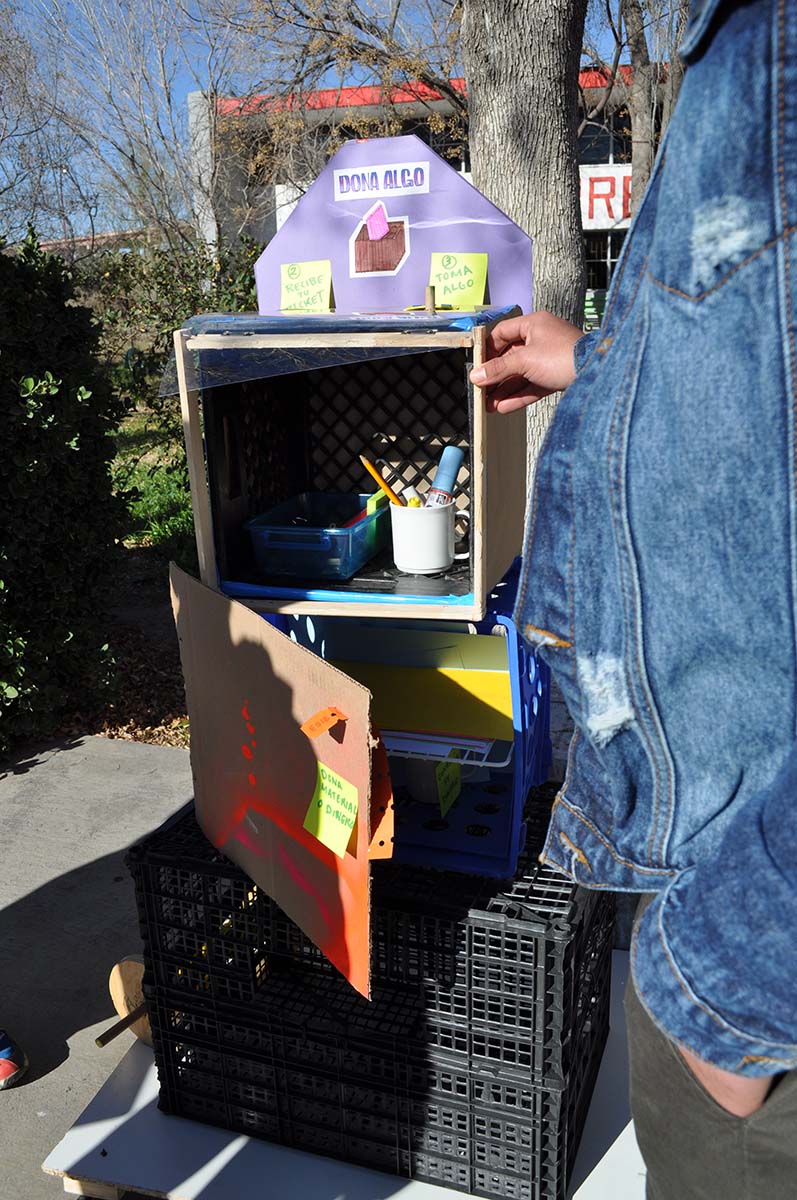Program designed by Perla Montelongo and Carolina Rosas
Excool Car
How might we fulfill our necessities without using money? What kinds of alternative economies exist? We delved into these questions during our two-month invention journey to explore social and solidarity economies.
The result: Excool Car. It's a prototype of a mobile school supplies stand where students gather donated items and offer them on a donation basis to those in need. Reutilization, donation, and adaptive pricing for those less fortunate are the cornerstones of Excool Car.
Since economics isn't an easy topic, we specially designed games, activities, field trips, and hands-on experiences to make it more understandable for our participants. We reflected on shared resources, collaboration, and a vision for a more inclusive tomorrow.
Check out the details below!
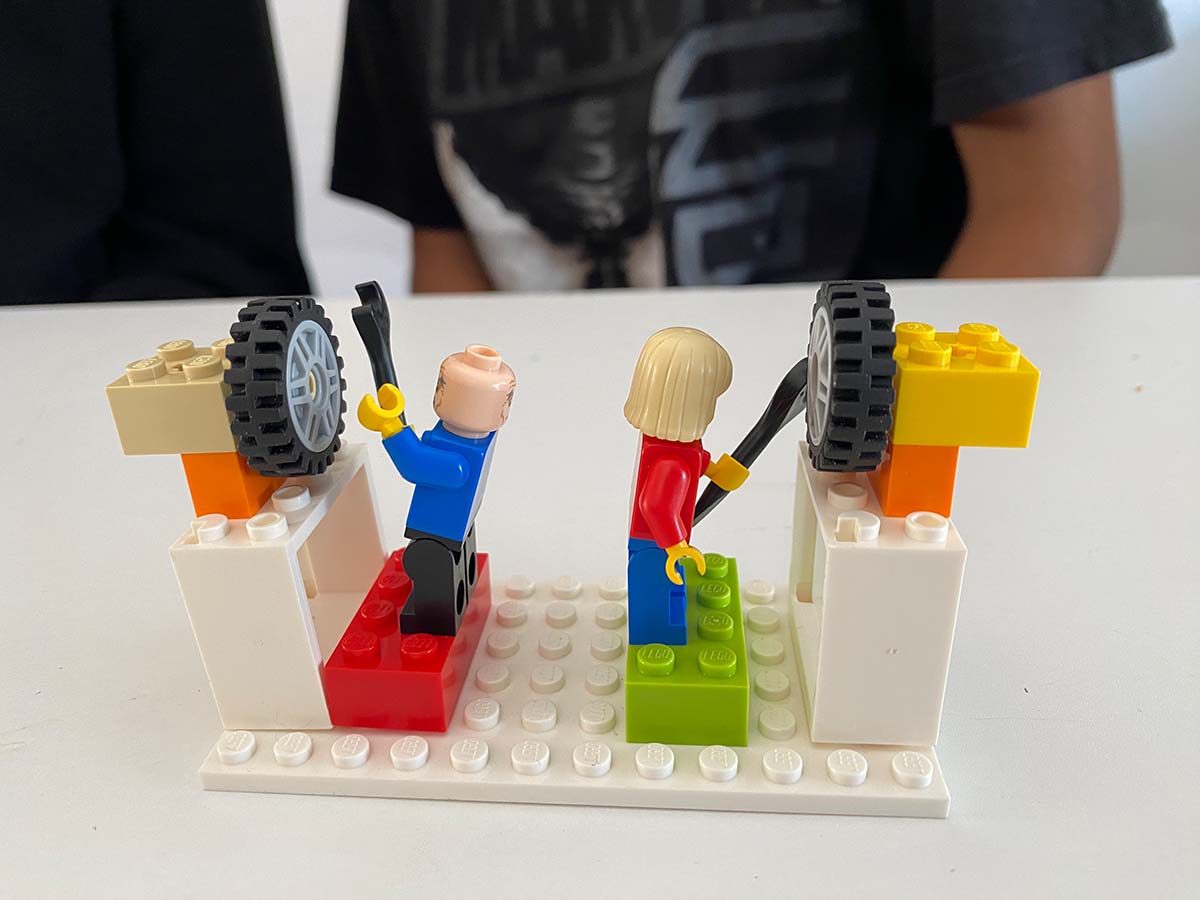
We started by understanding how the current work system operates in the factories where several of our students and their families work.
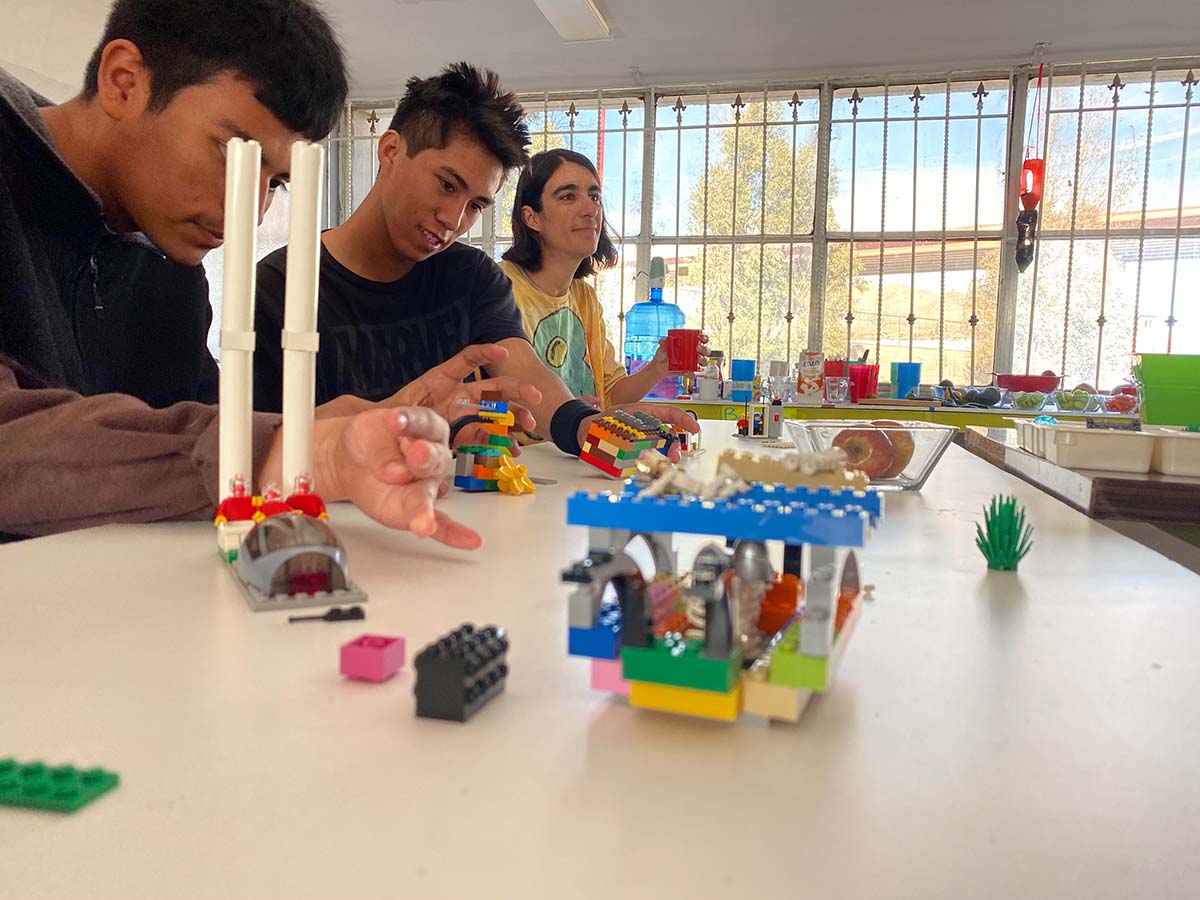
We used LEGO to show and share their experiences. Building allowed participants to think and reflect on what they wanted to explain.
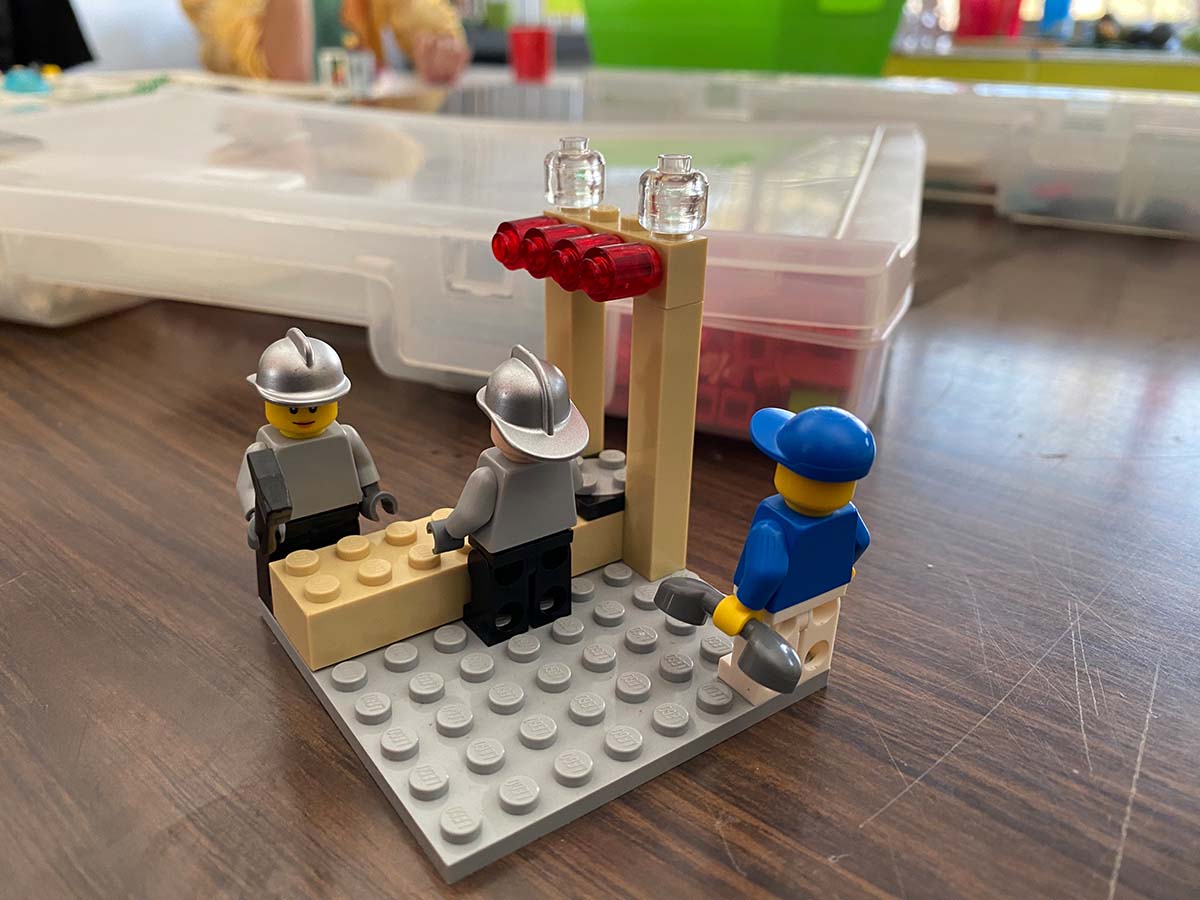
A view of the finished factory :)
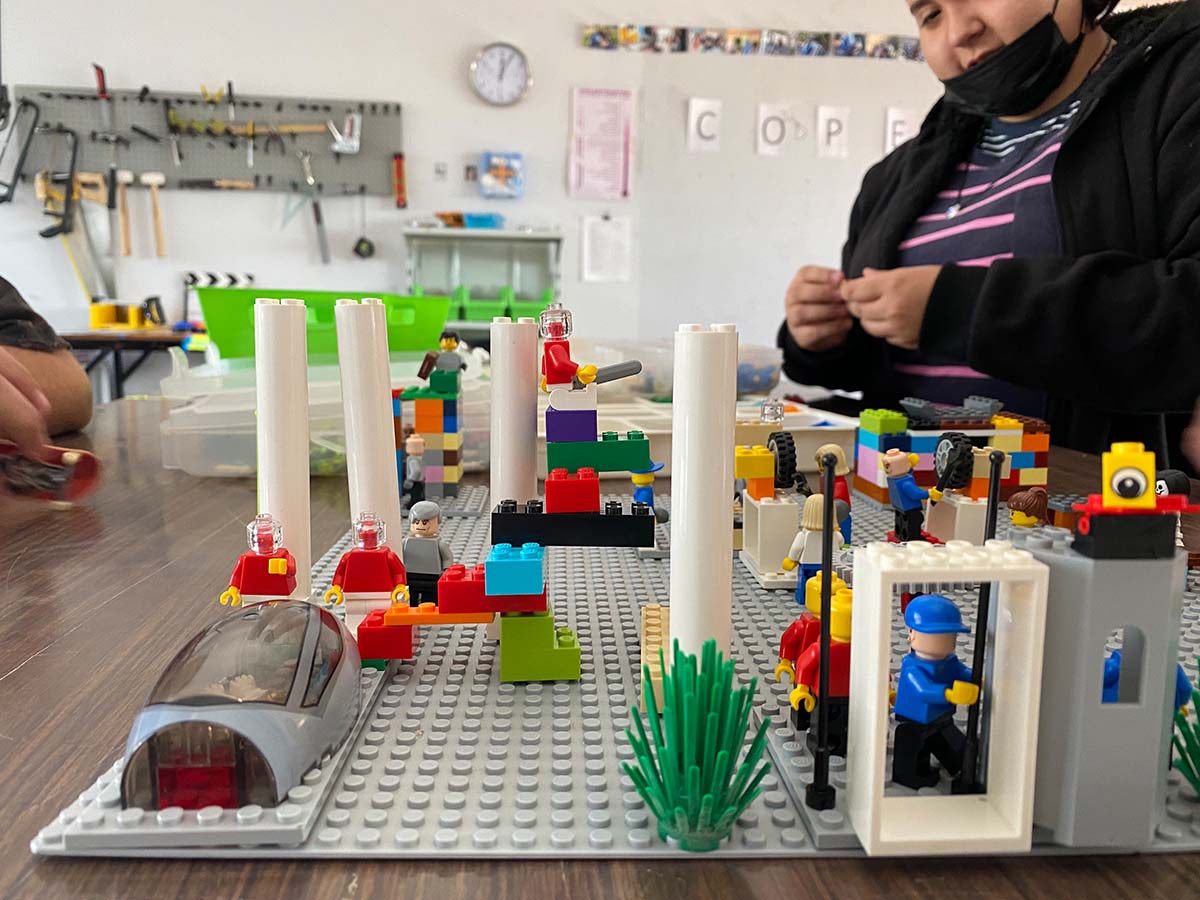
We played an adapted version of 'The Game of Capitalism' to understand how money and power structures work.
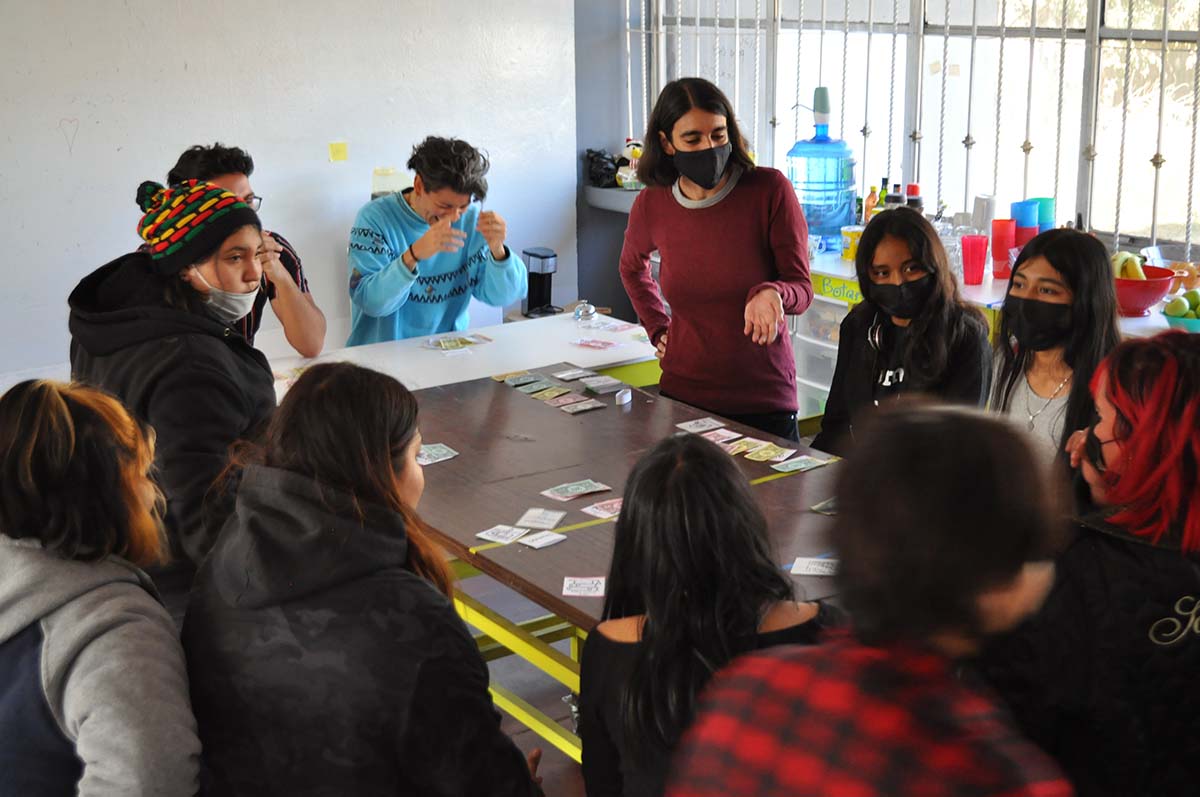
Money, money, money...
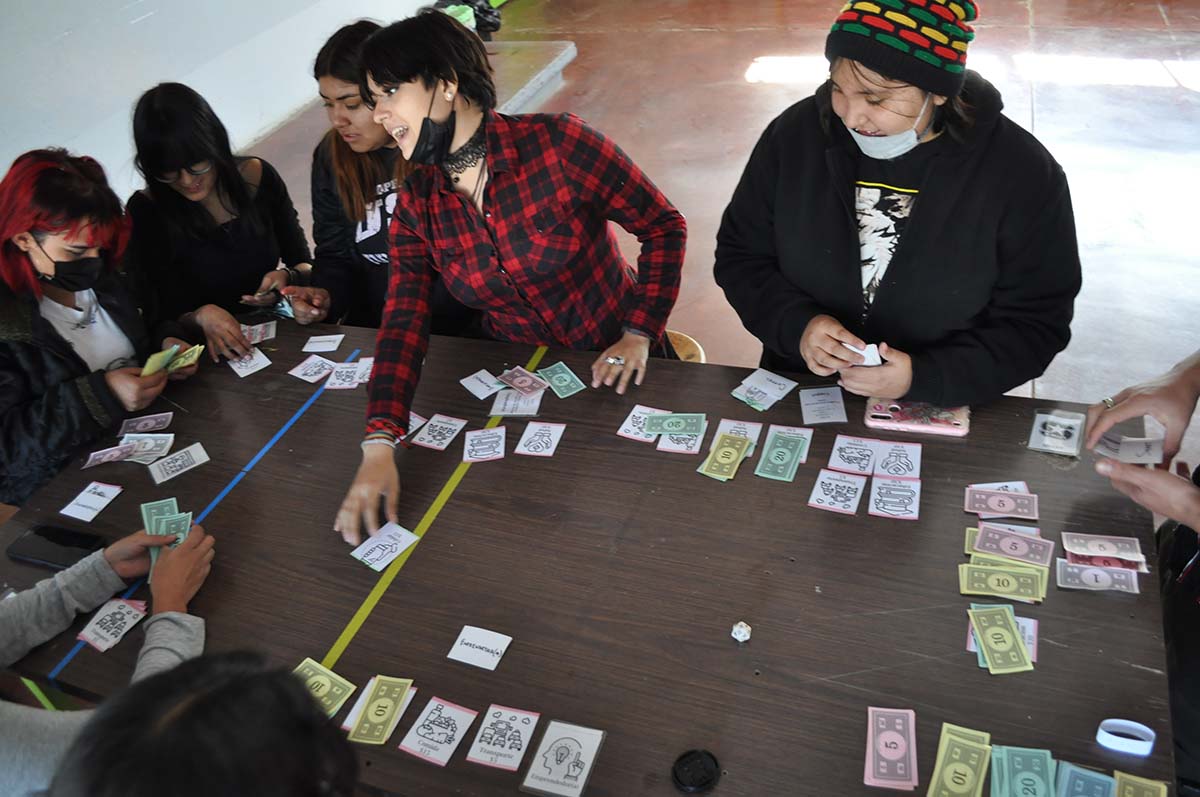
What happens when you get the role of the boss? What happens when you are a badly paid employee?
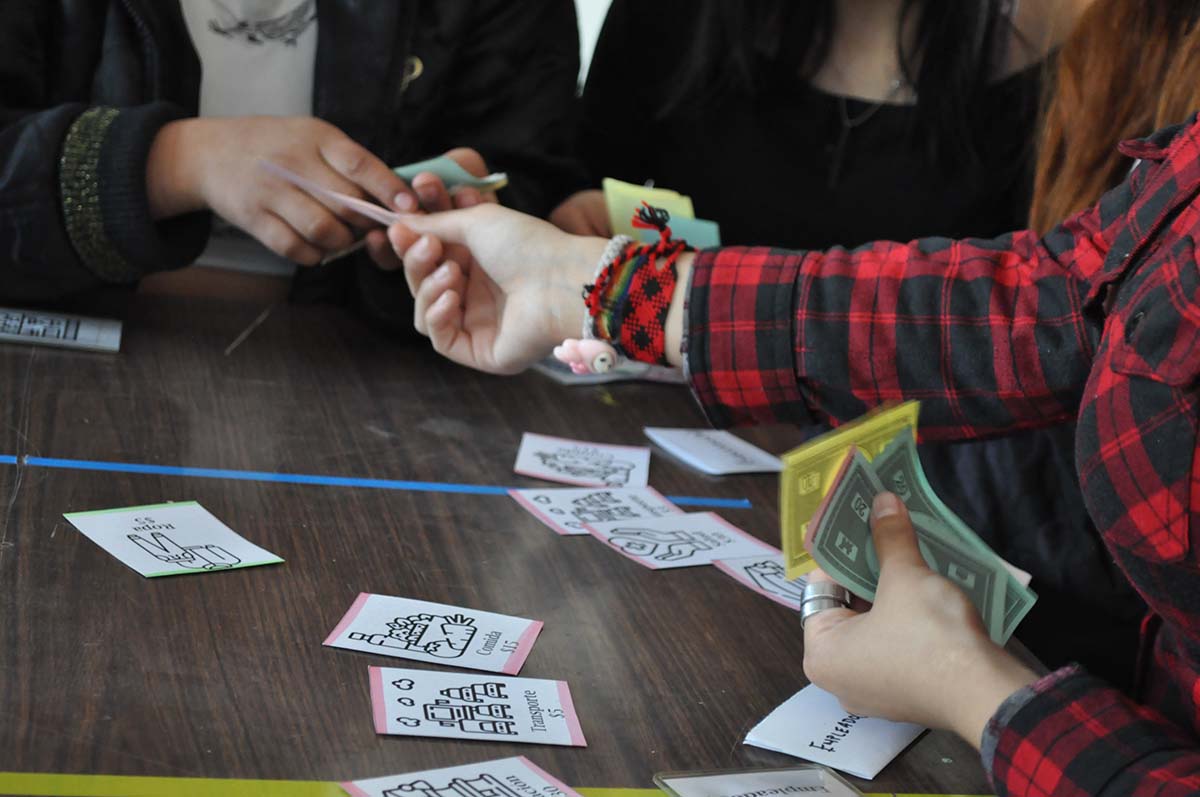
What happens if you monopolize all resources? What happens if you share?
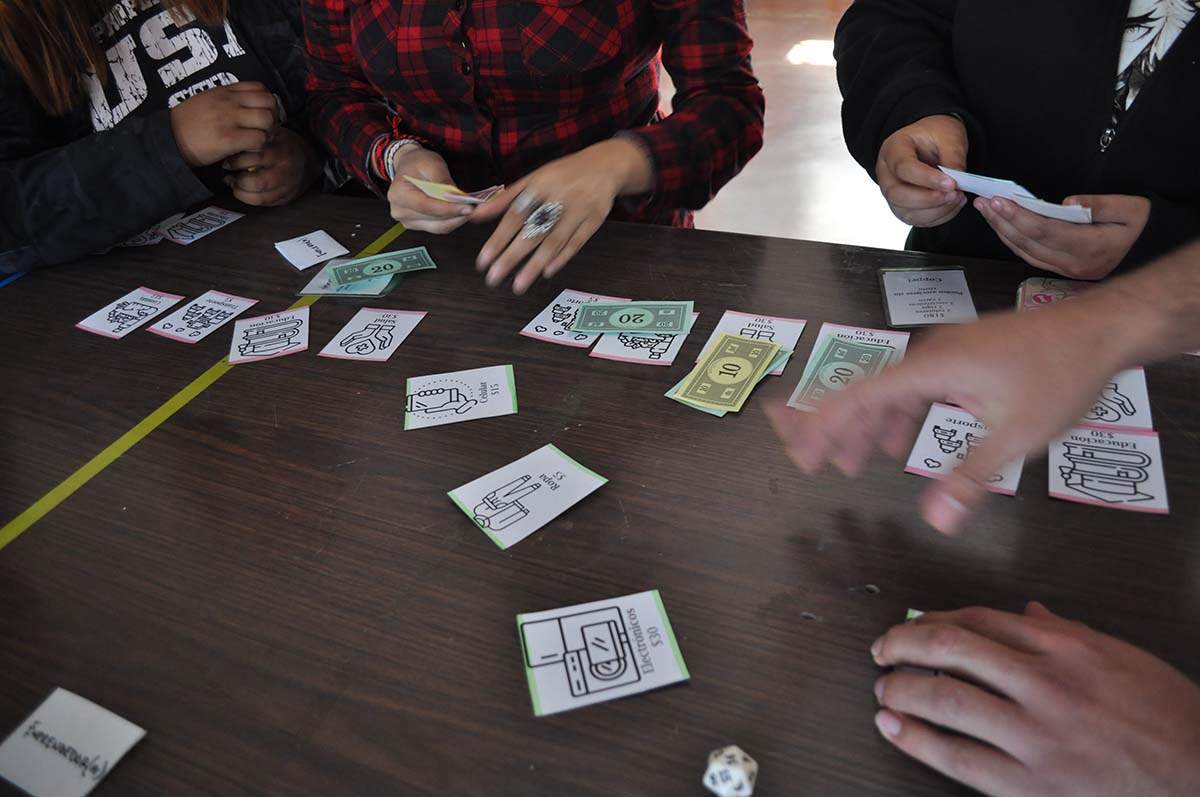
Carolina Rosas explained to us how cooperative economies work
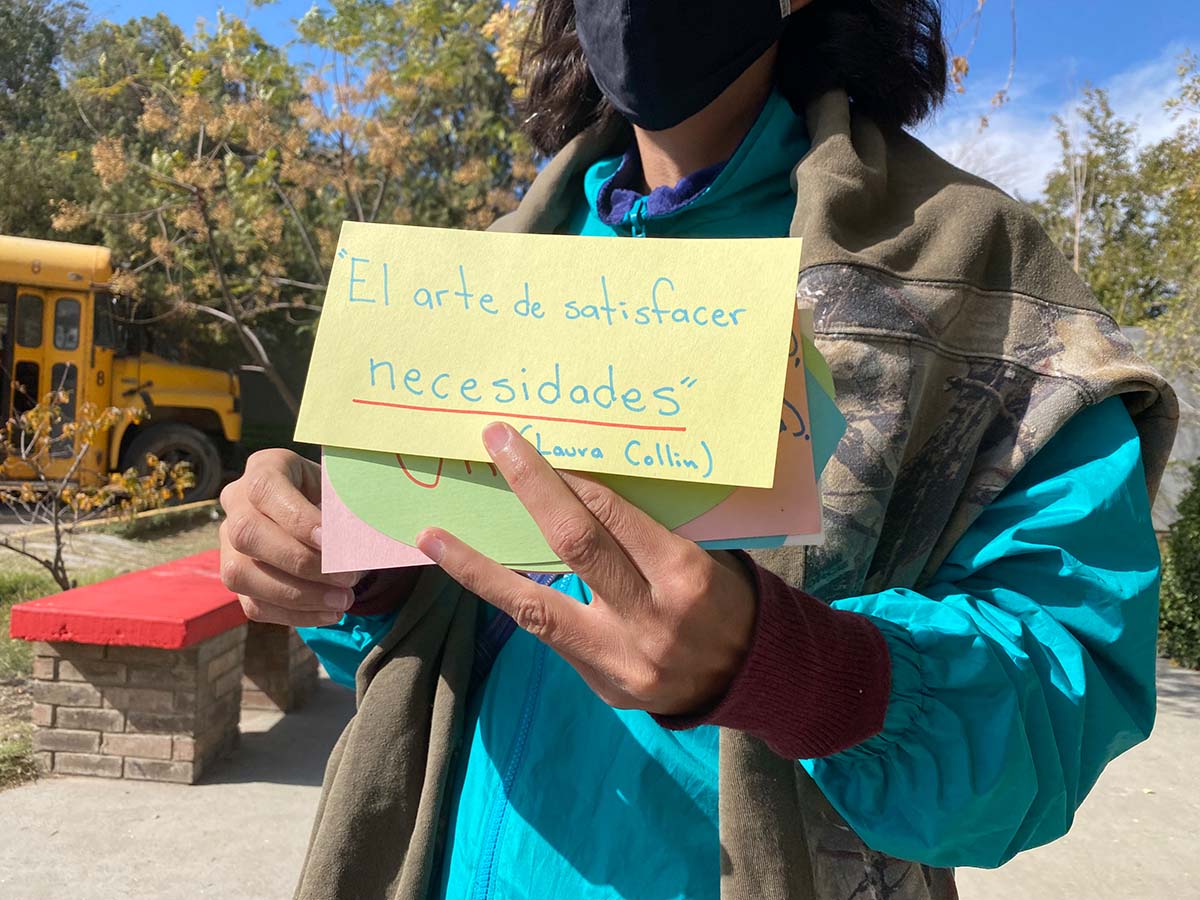
-
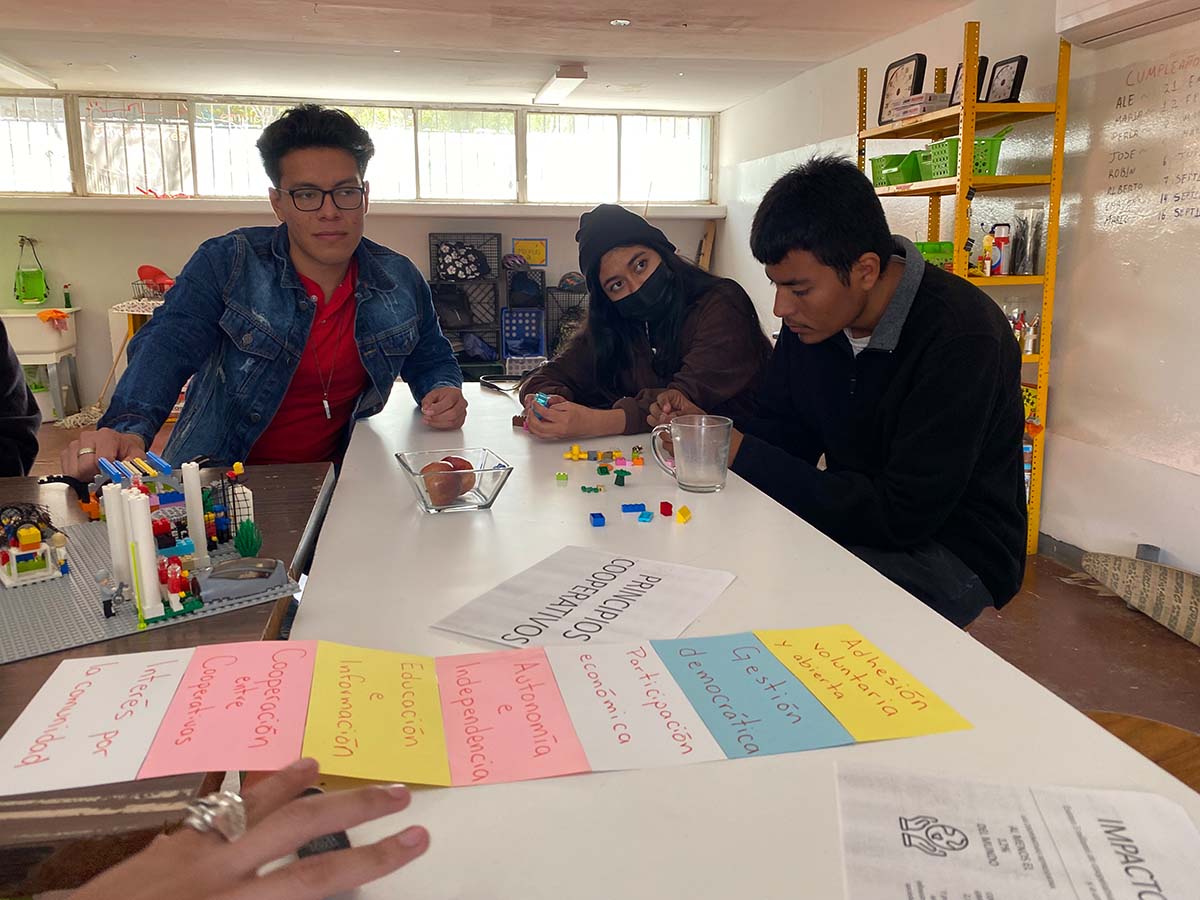
-
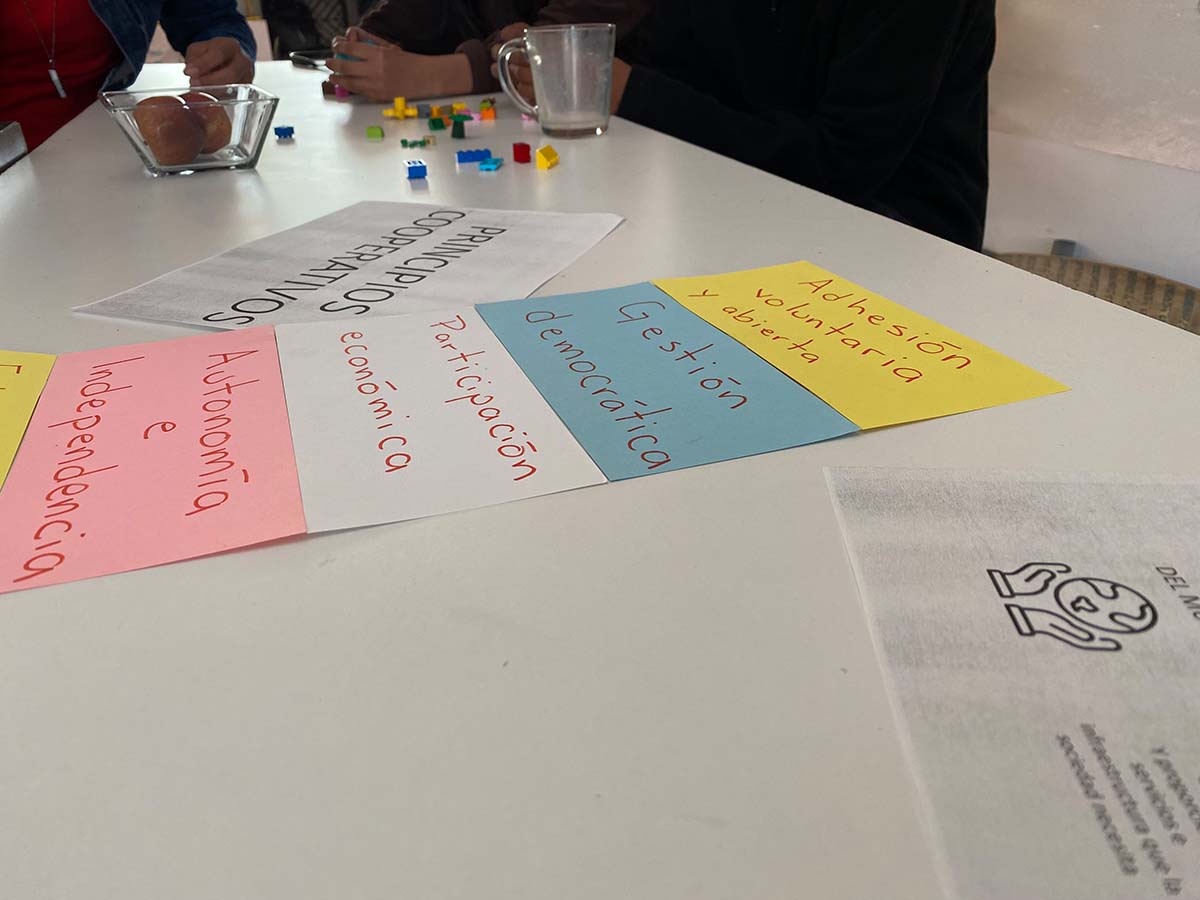
Last explanations before we do some field research...
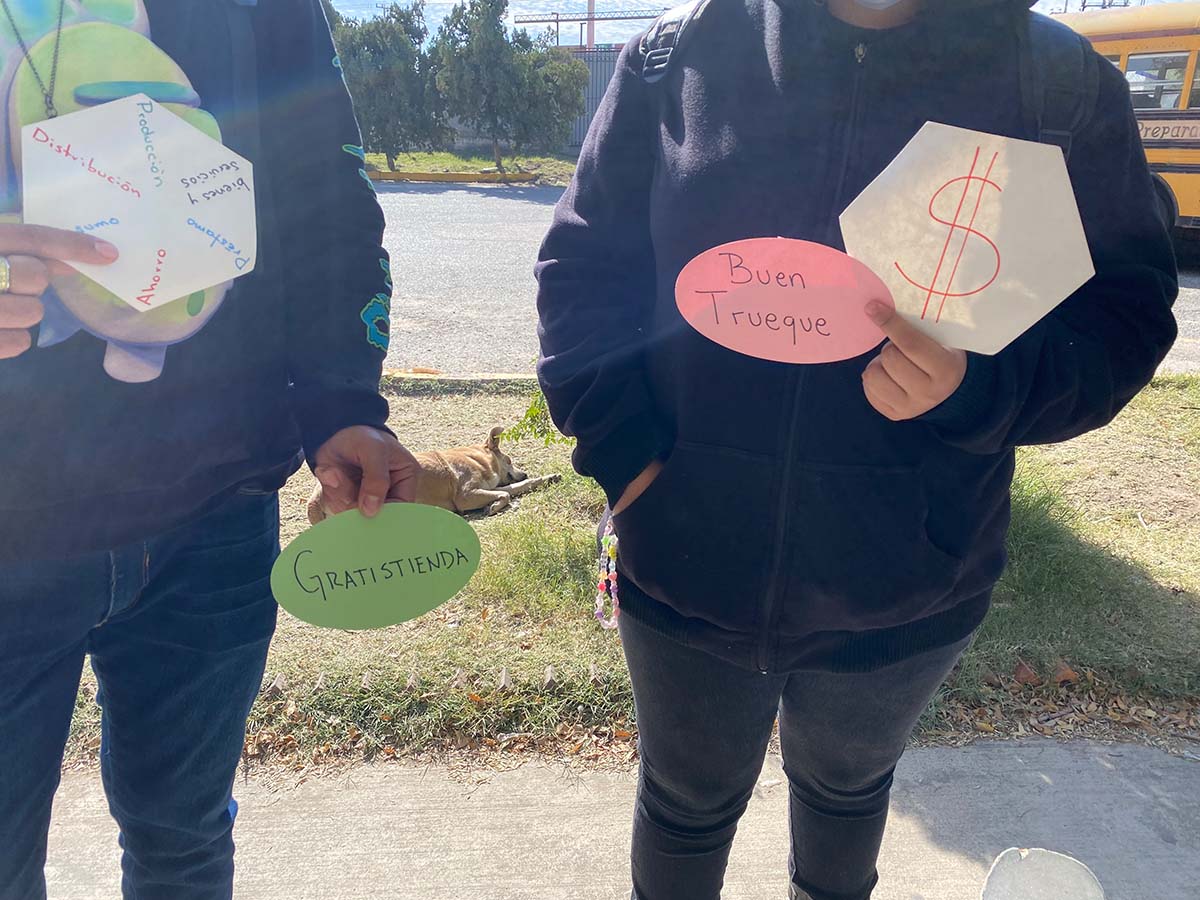
Understanding how 'free shops' work before we get ready to visit one!
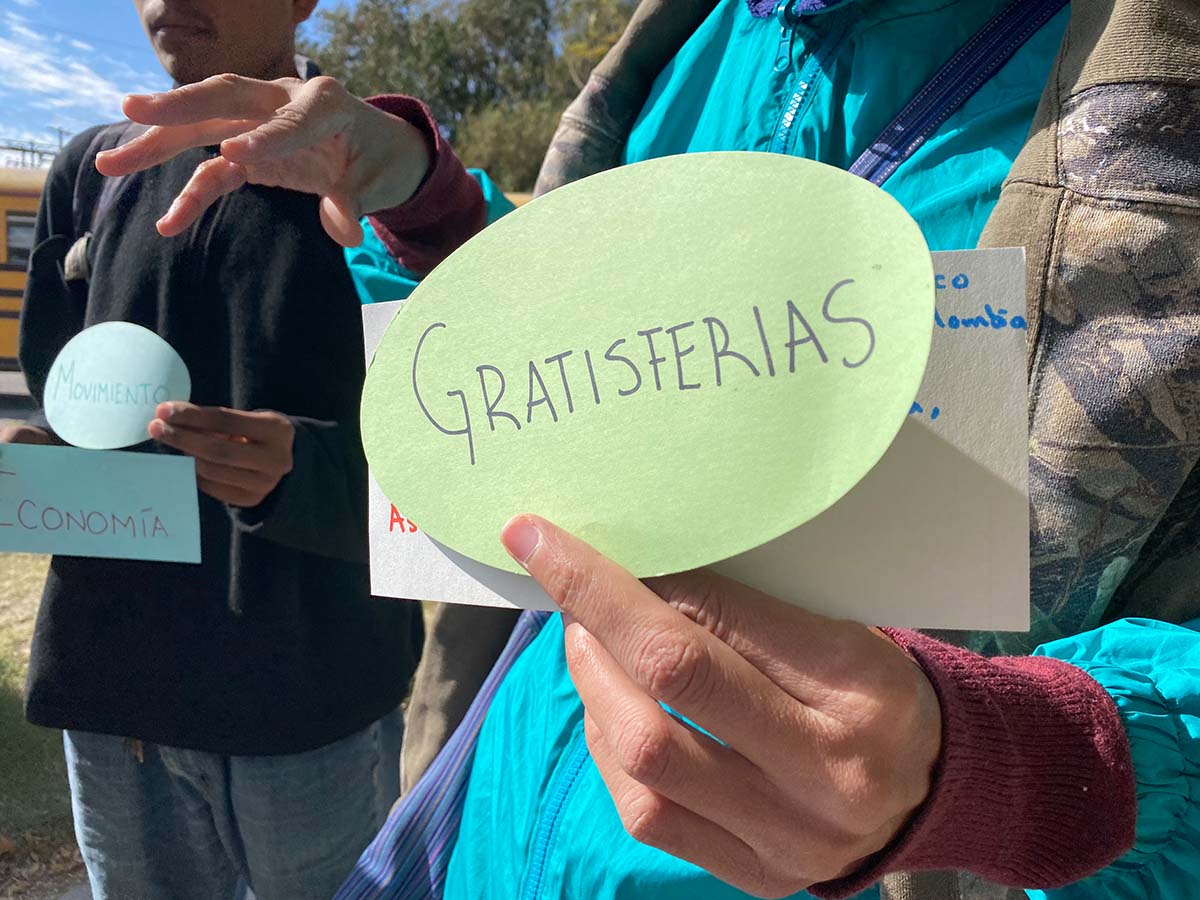
Finally at 'Gratis Tienda' (Free Shop), Julio, the founder of the project, explained to us how it works and how it started.
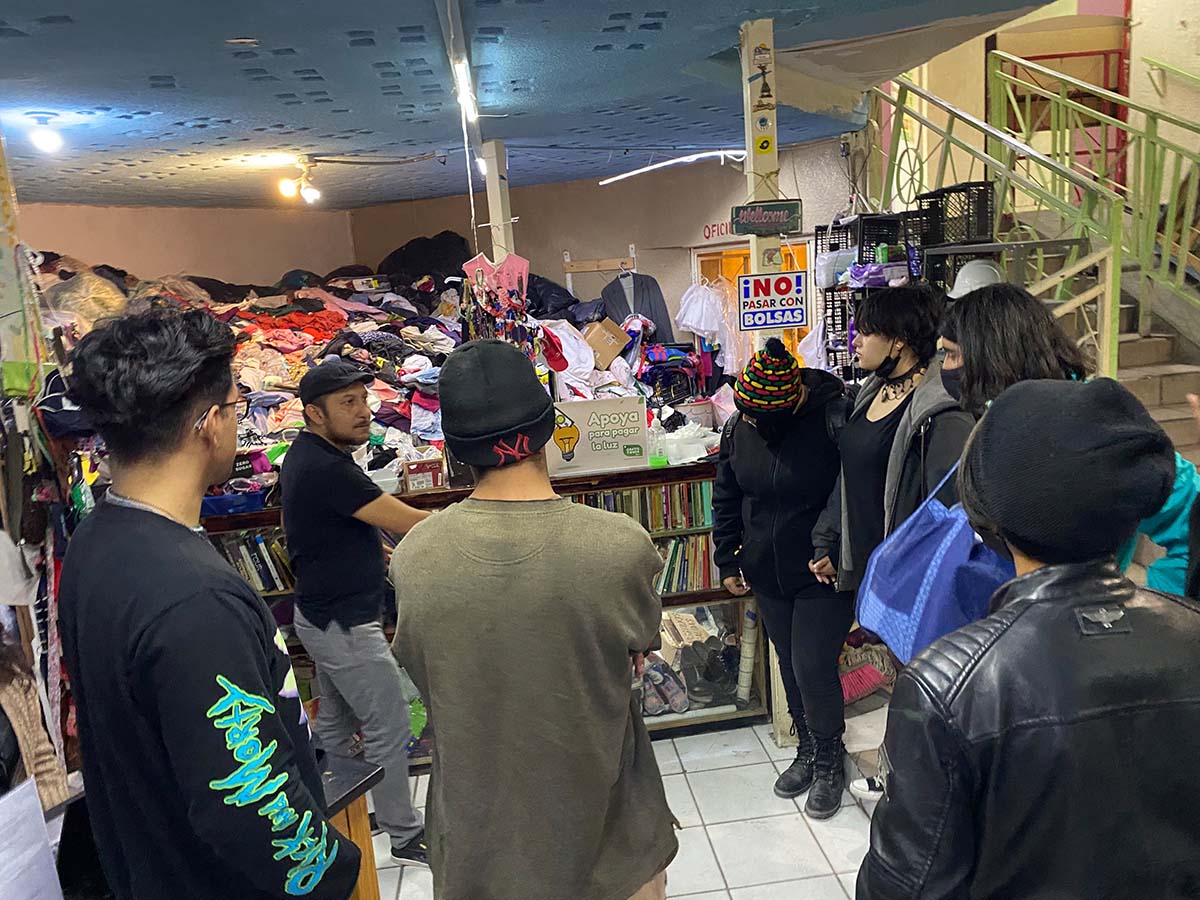
We also explored projects in the city, that operate on the principles of cooperative economies.
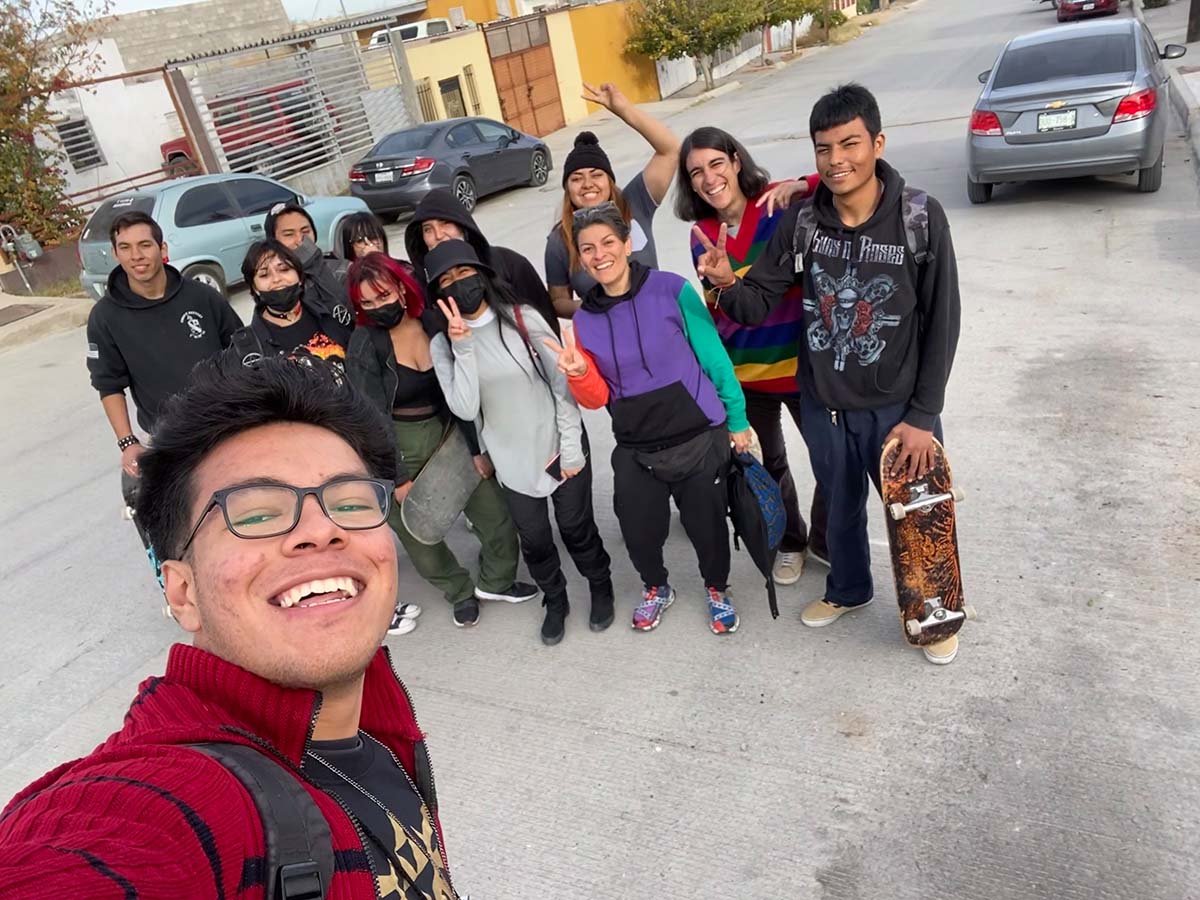
Like Ni En More, a cooperative of women led by artist Jane Terrazas, that works with natural and local pigments to create unique fashion items.
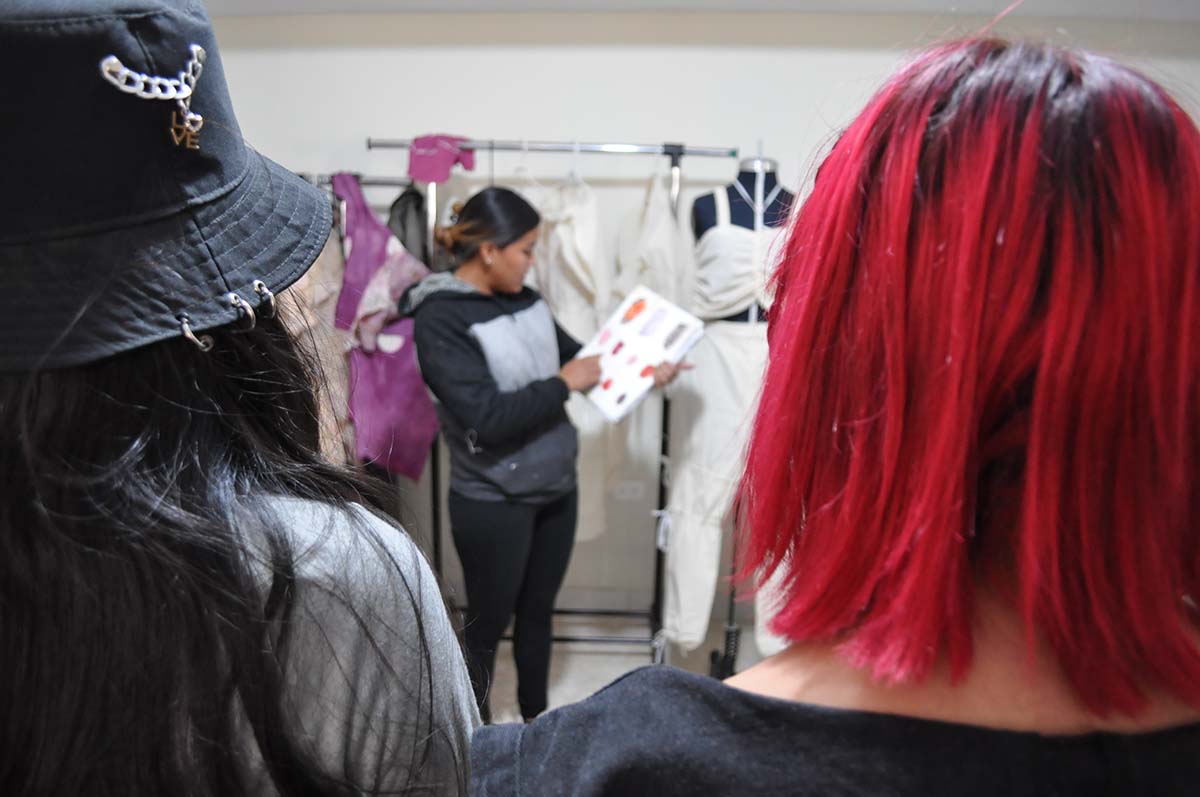
-
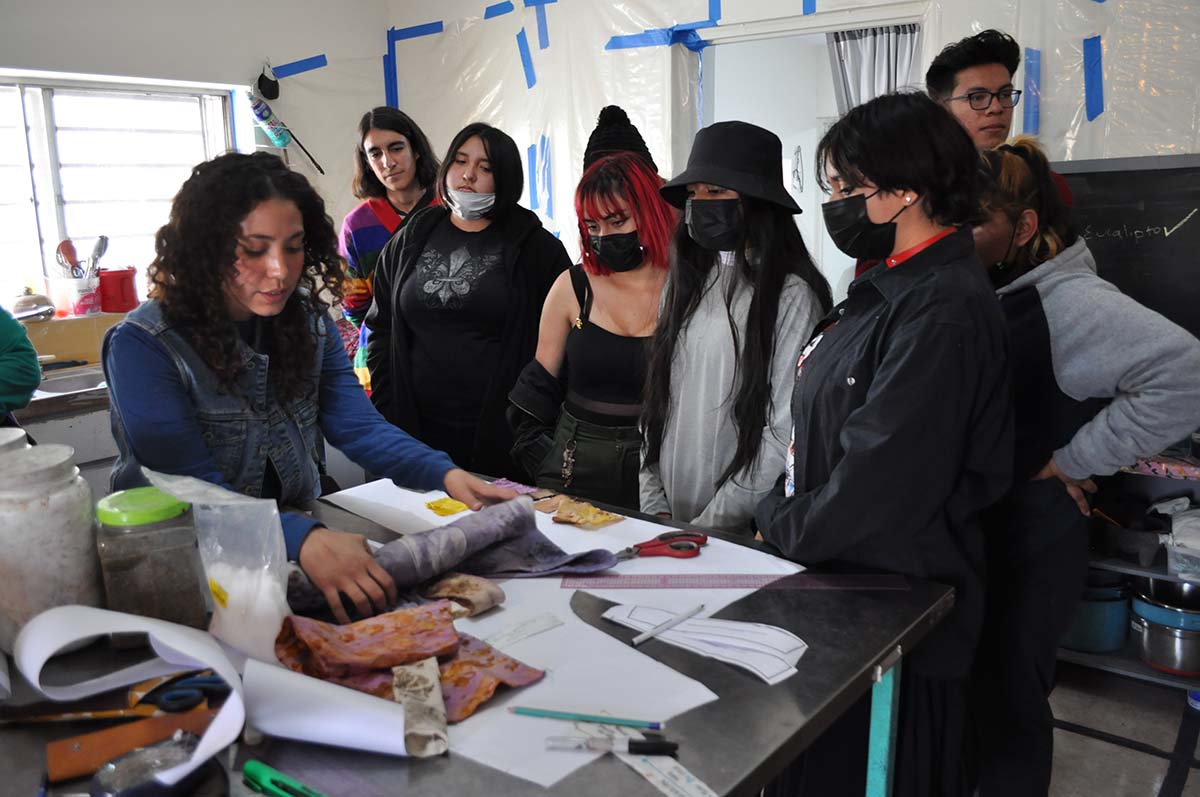
-
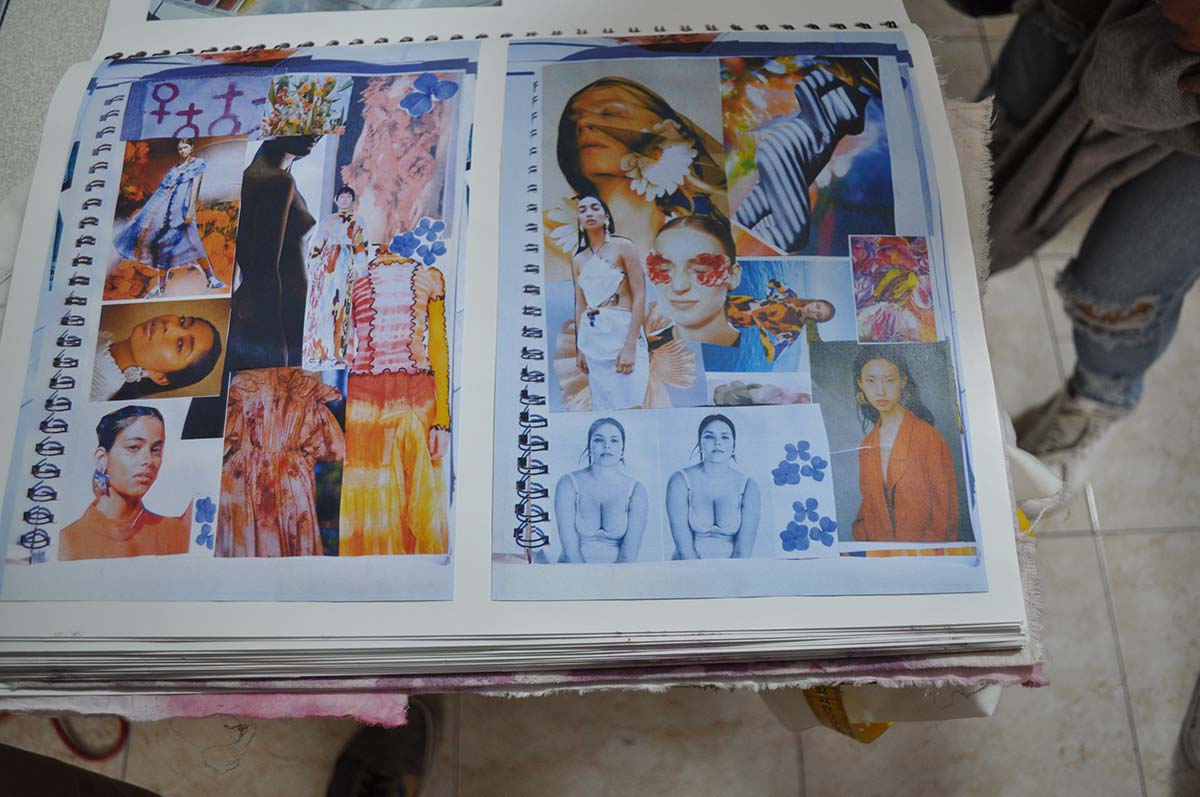
-
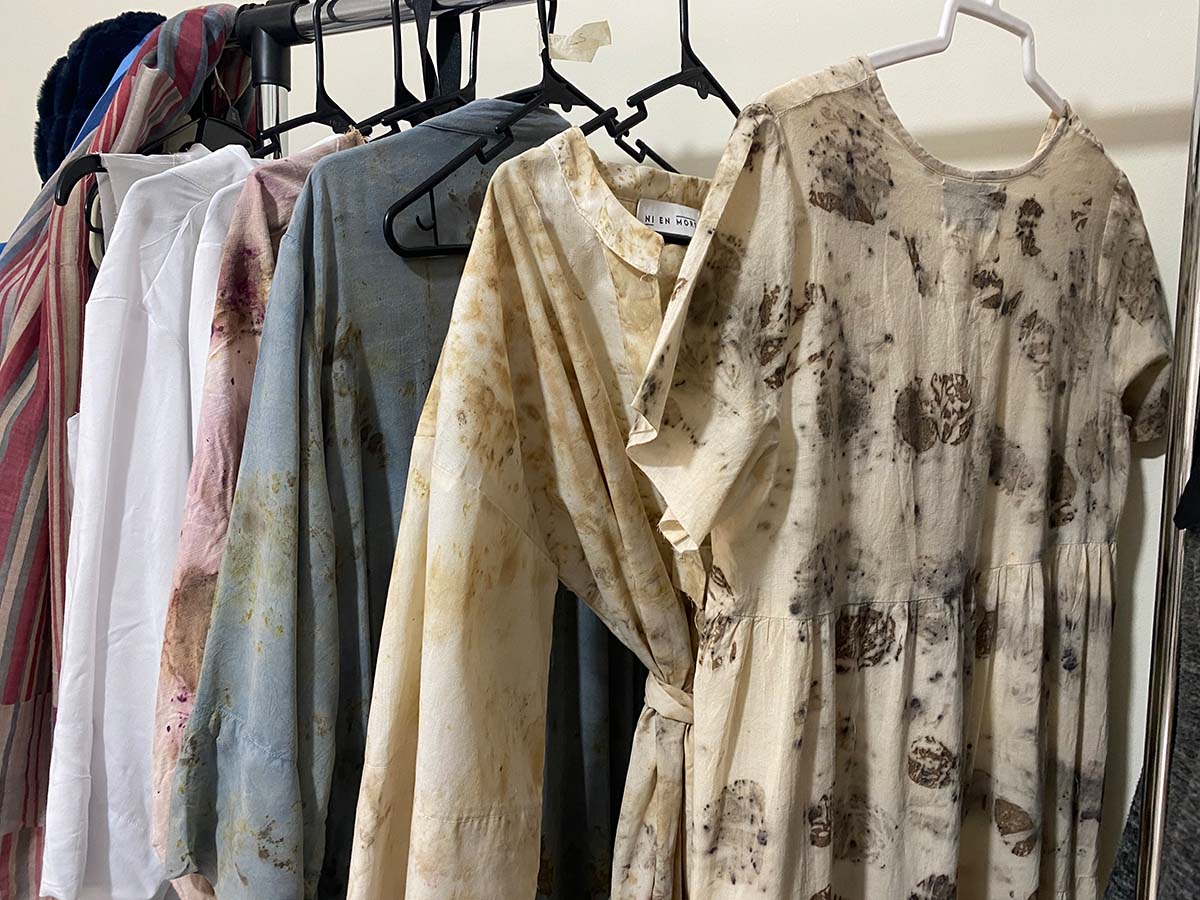
-
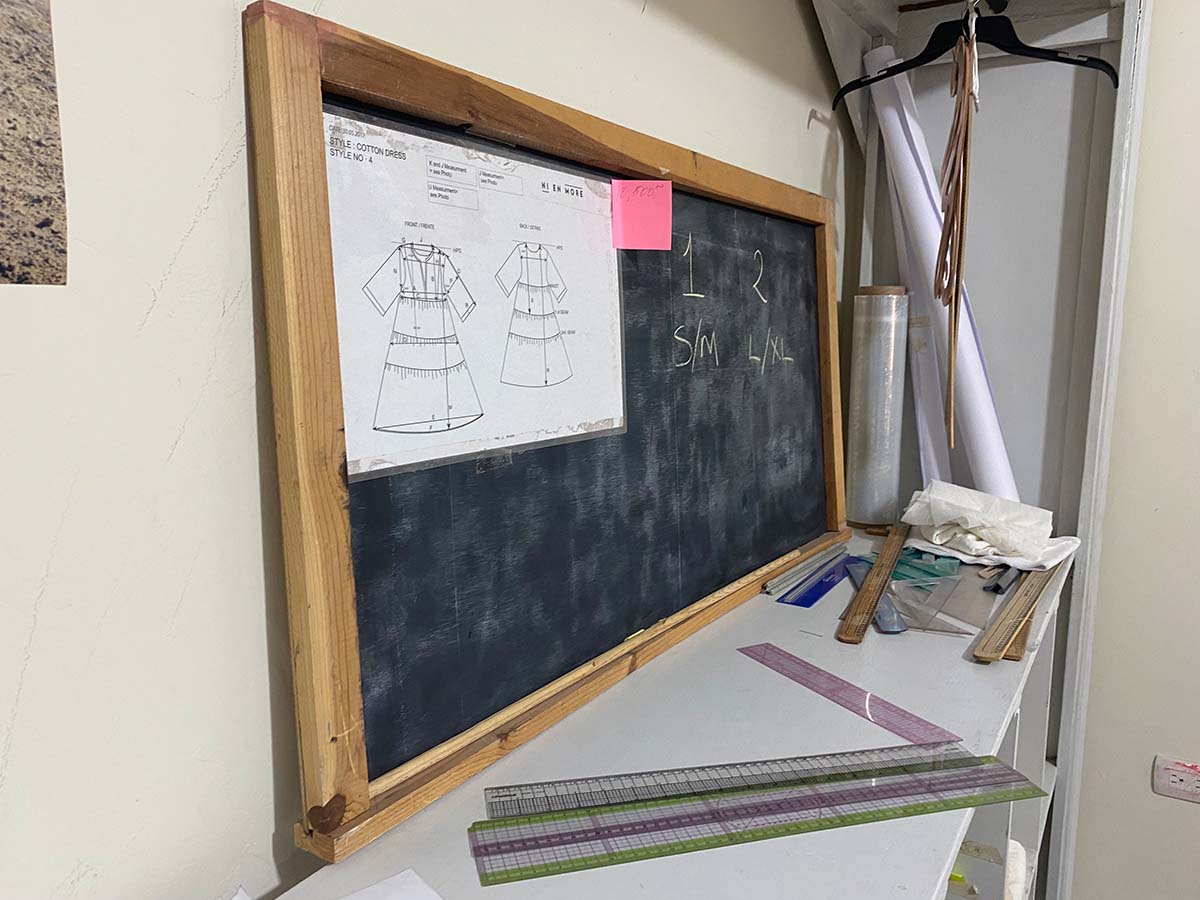
With the help of Miguel Pérez, we created a unique self-designed game that explained in a fun way, current economic structures and the relationship between socioeconomic status and nutrition.
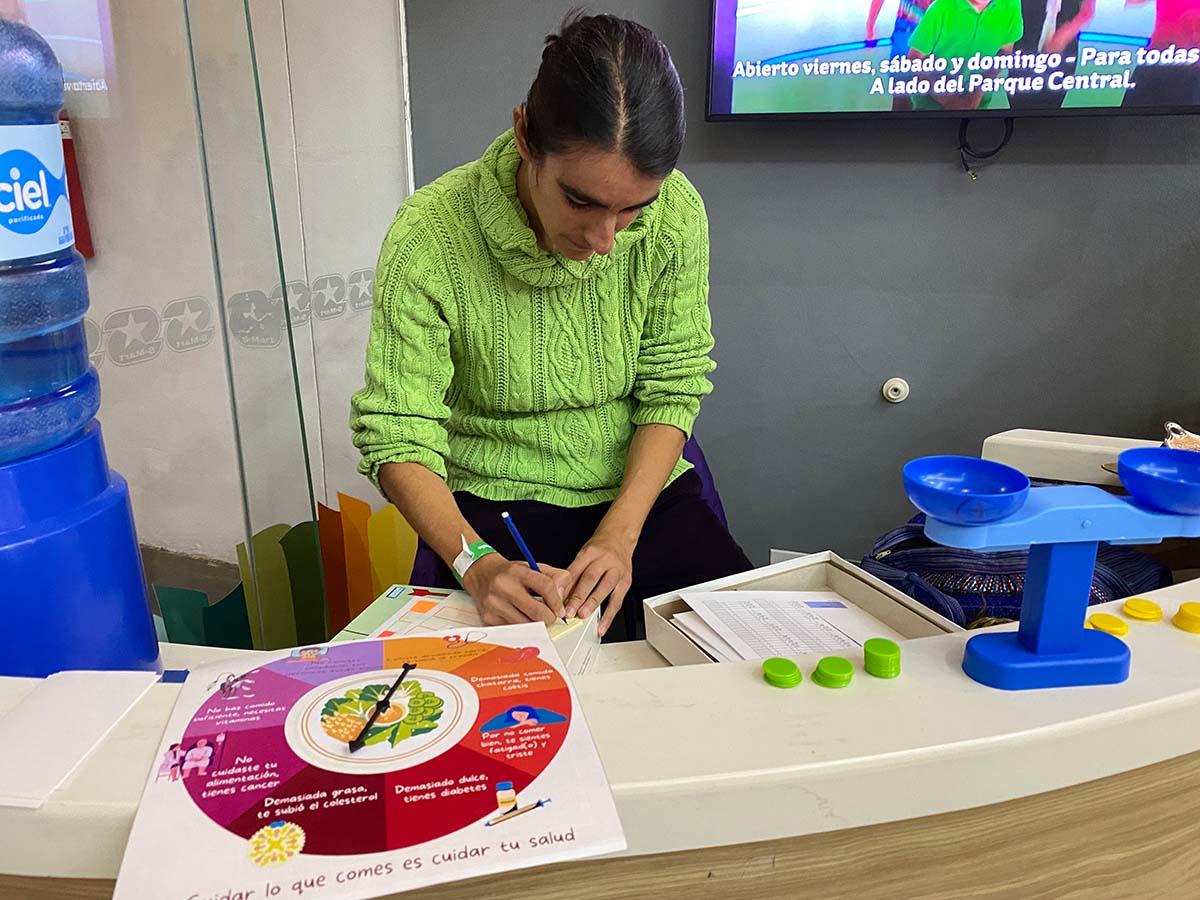
Who will be able to feed their family with healthy food? A game of unfairness
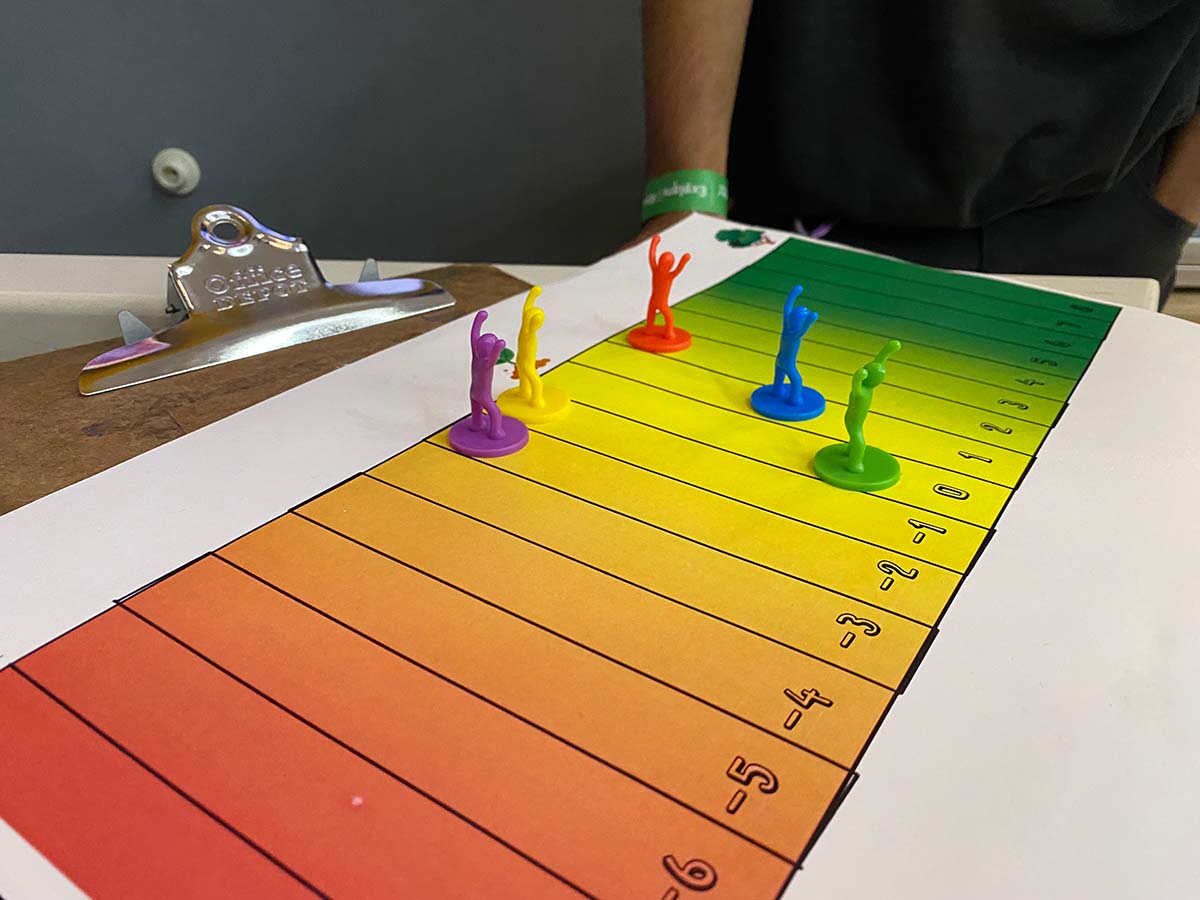
For the game we used the mini-supermarket at Rodadora Museum. Thanks a million to Miguel Pérez and Lizbeth Gallegos for letting us use the space!
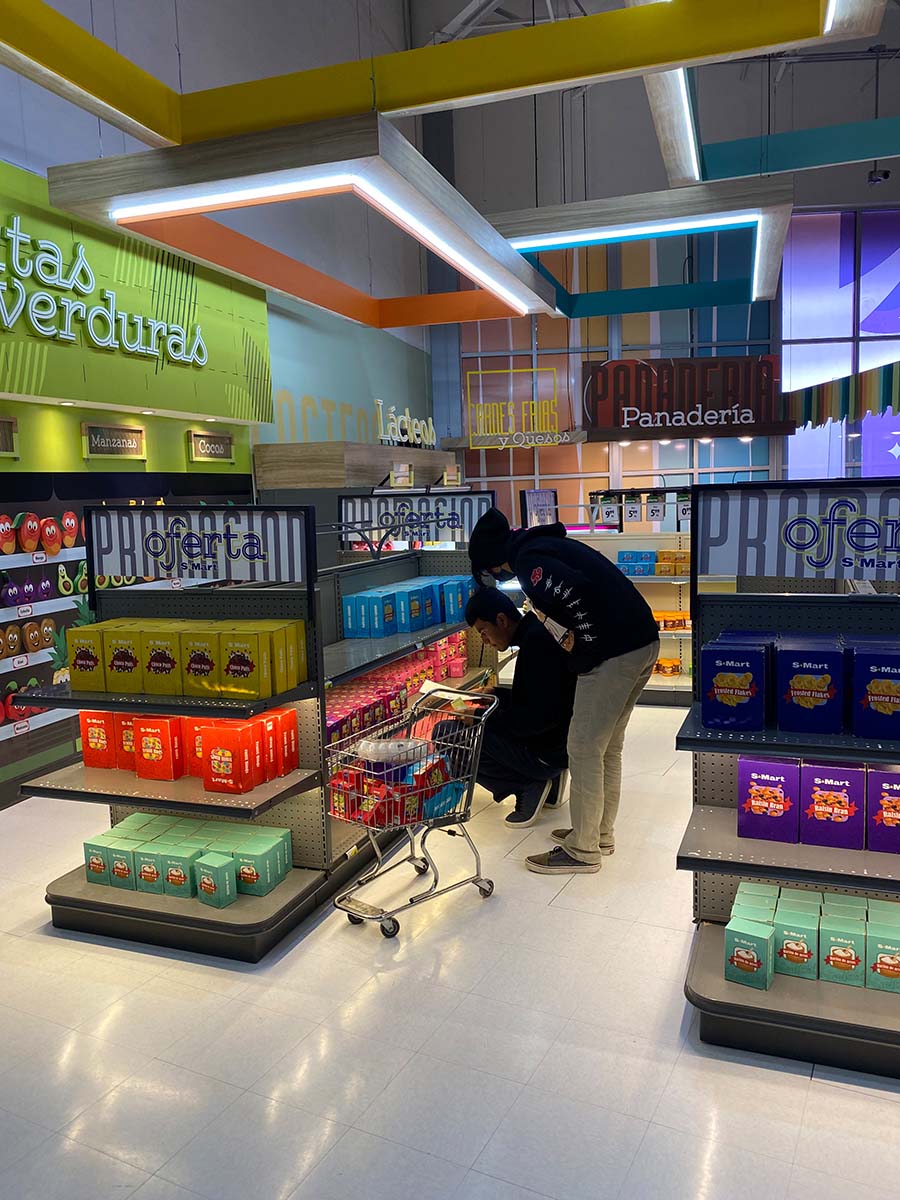
-
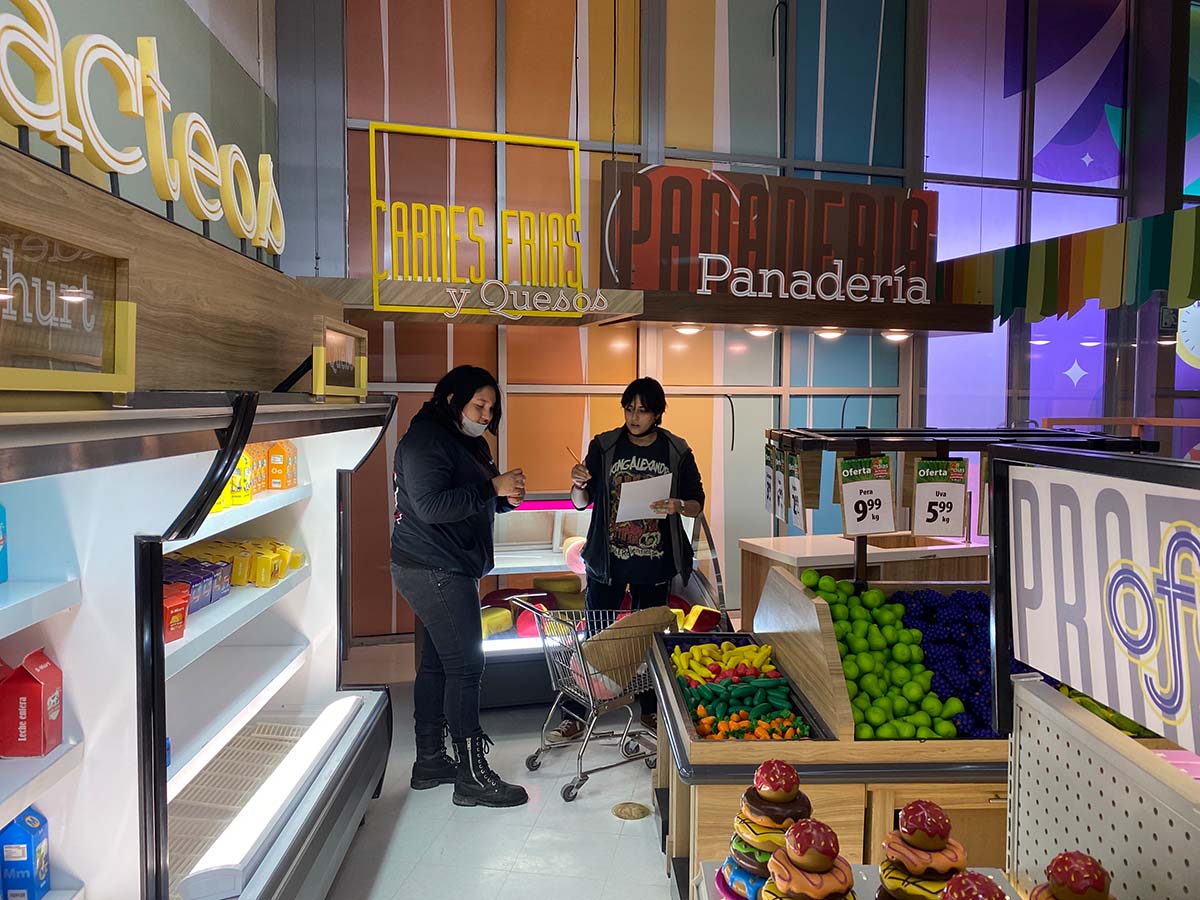
Feeding a family of 5 with the minimum salary is not easy, but this team made it!
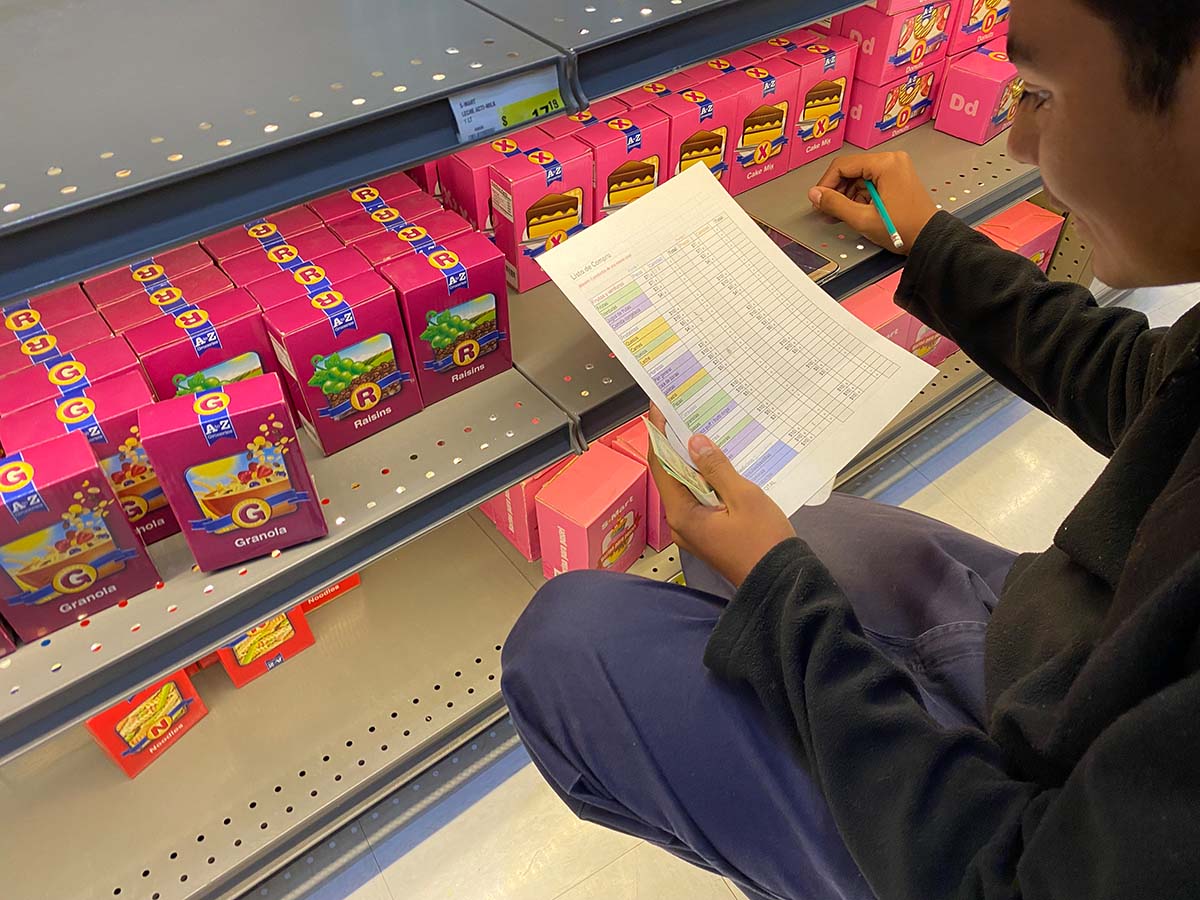
-
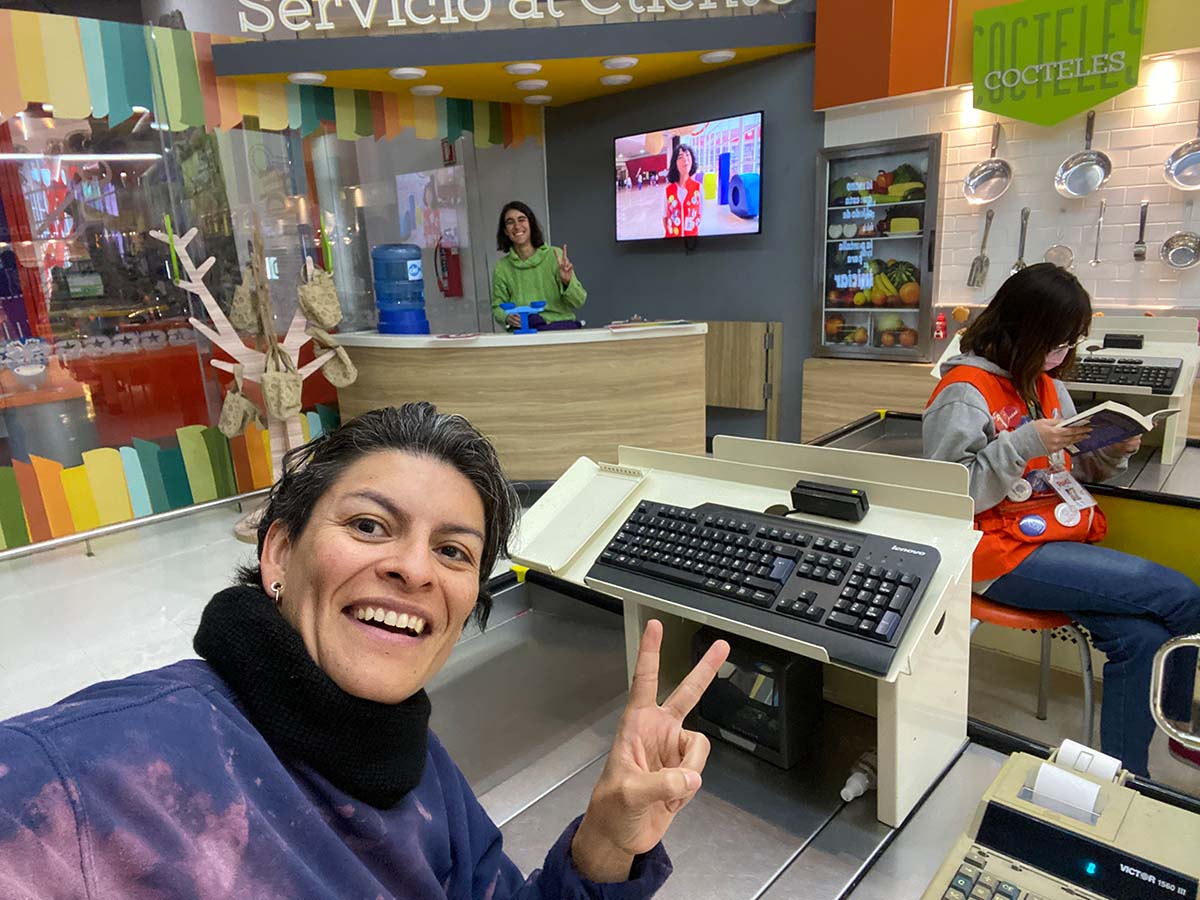
And after some weeks it came the grand finale – our very own prototype.
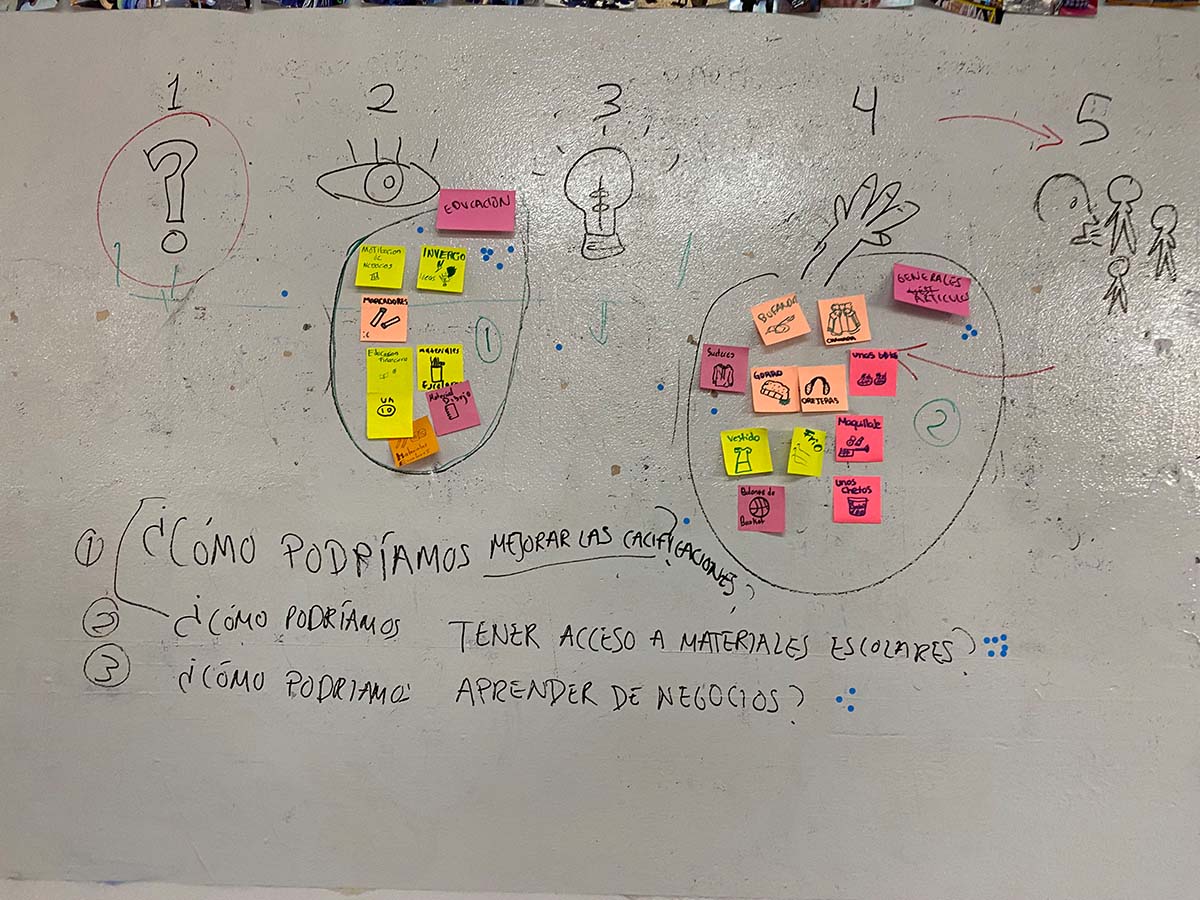
A machine that collects donated school materials and offers them to students at a "pay what you want" basis.
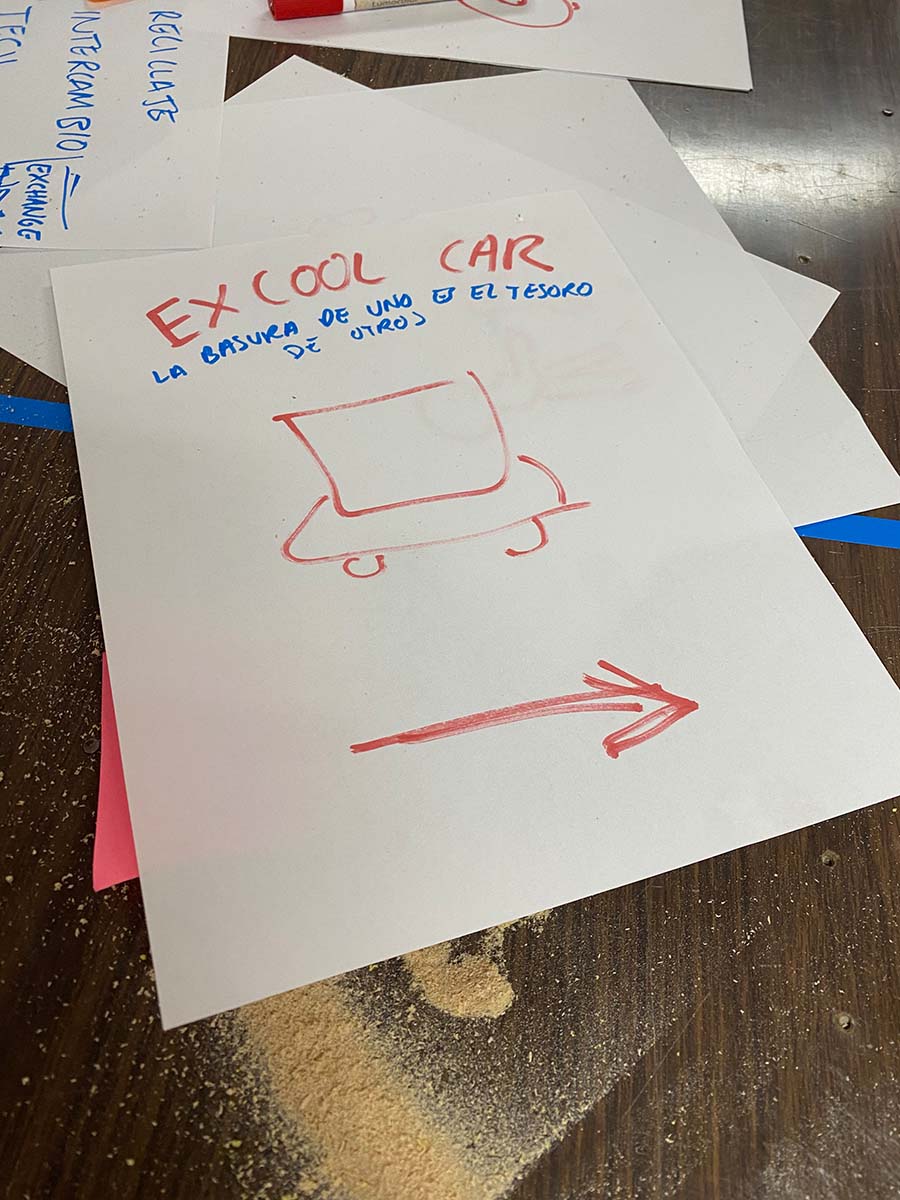
From ideas to prototype
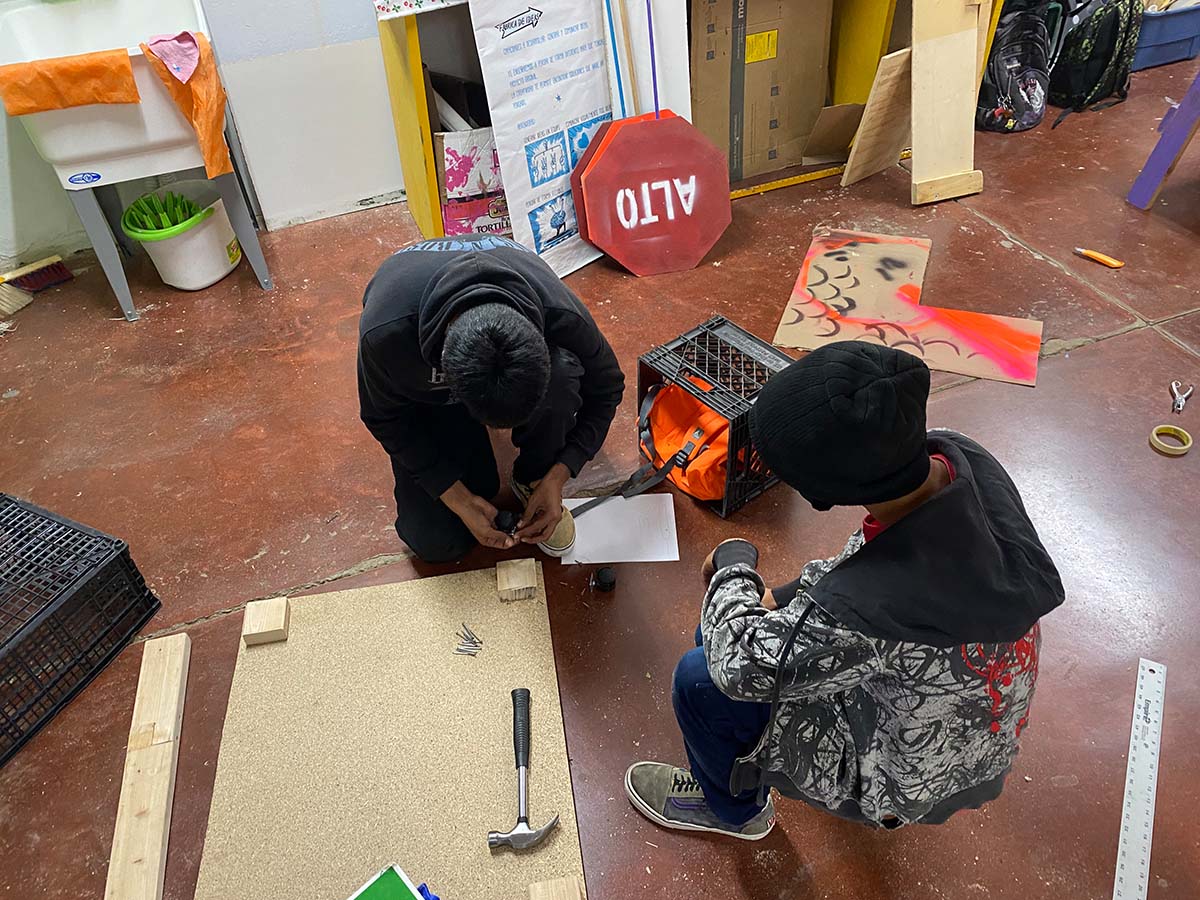
-
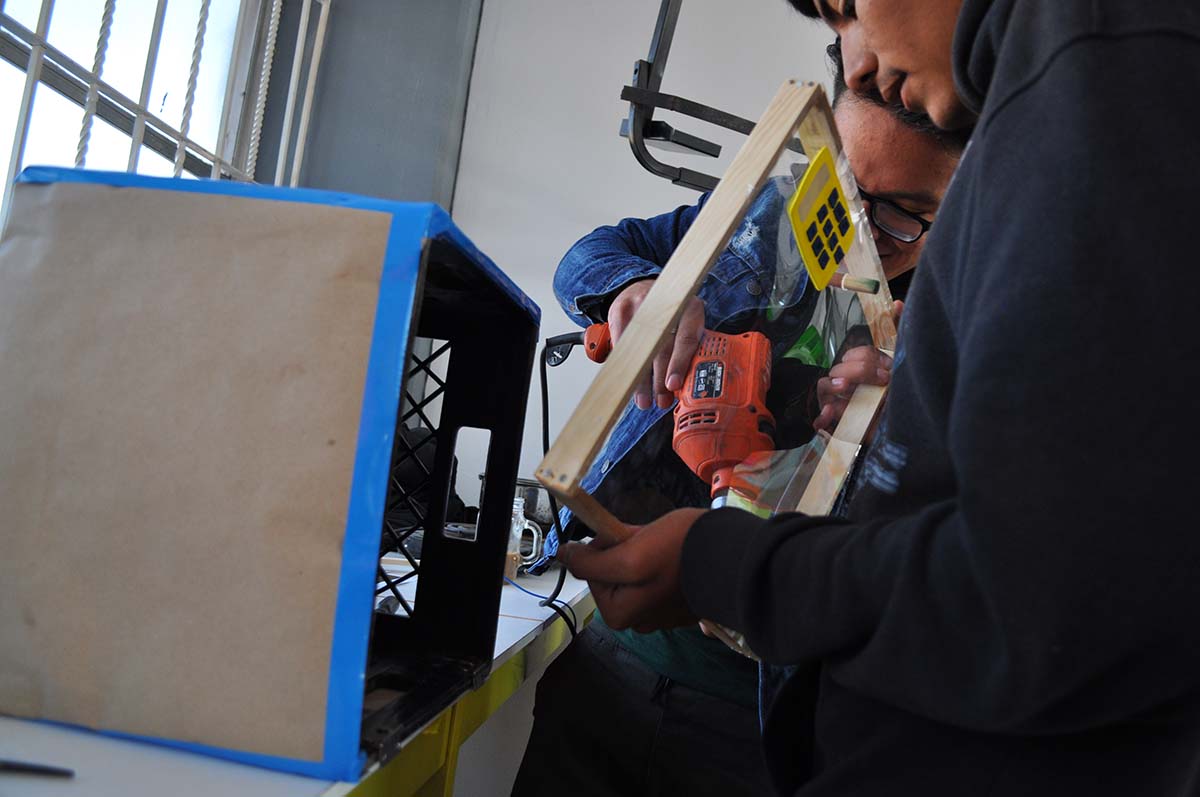
-
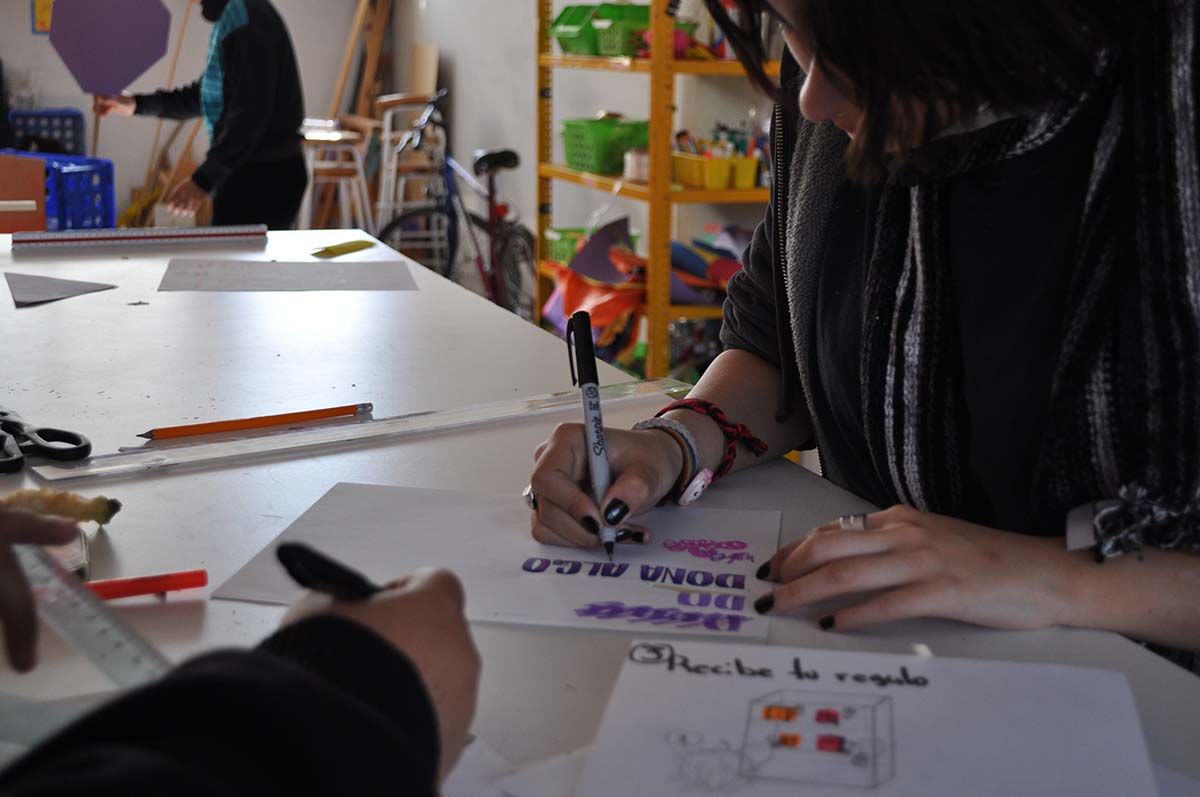
-
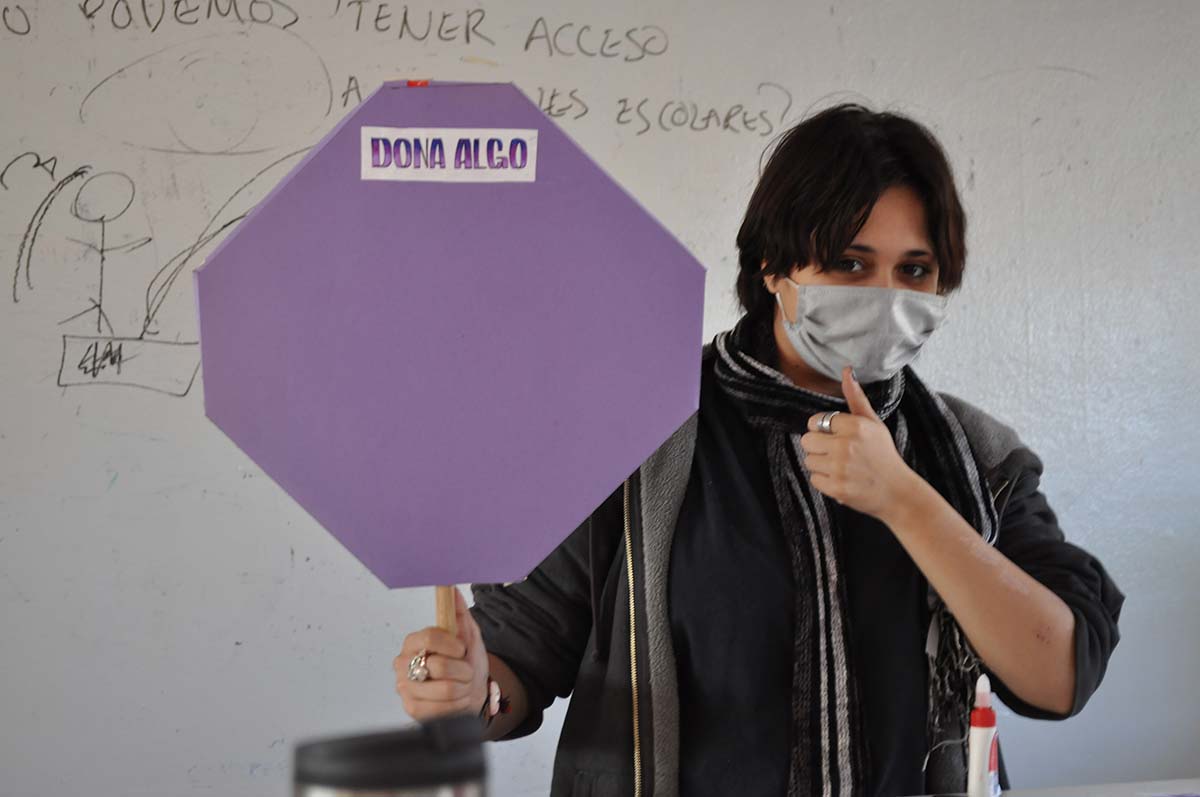
-
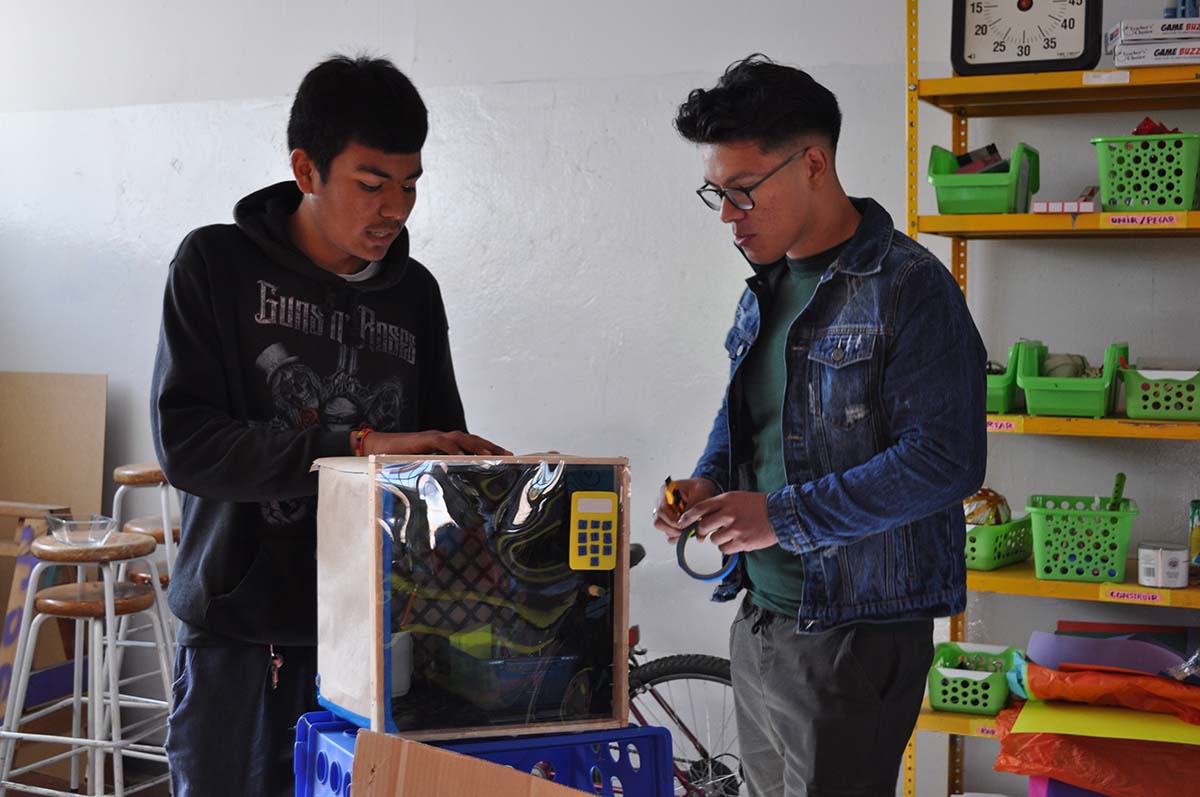
-
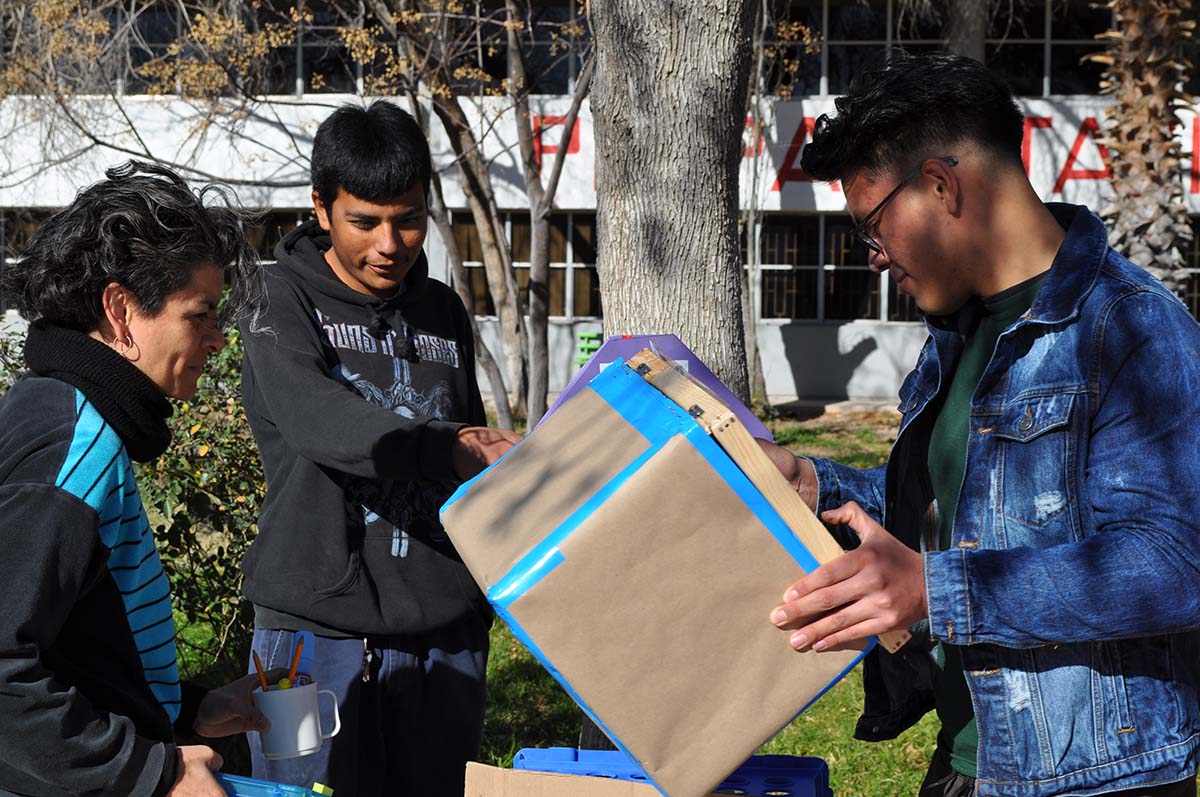
-
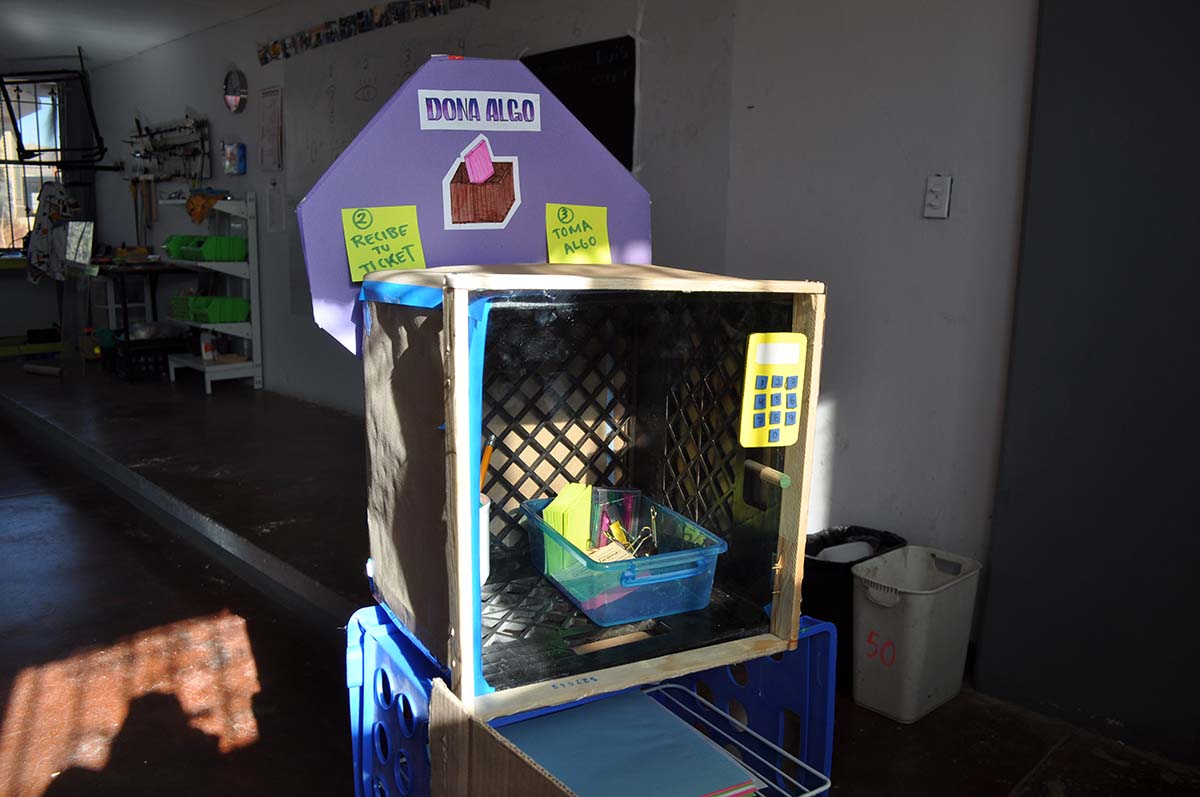
Testing the idea and getting feedback from a potential user
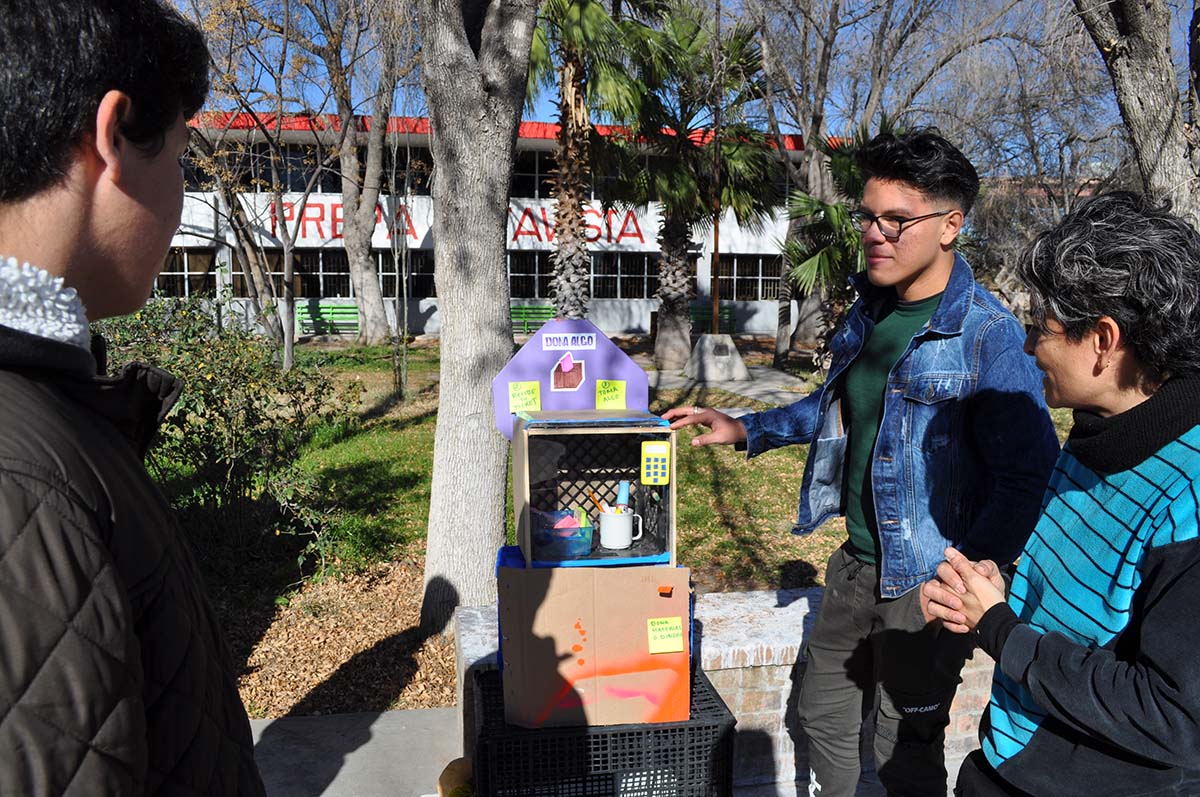
-
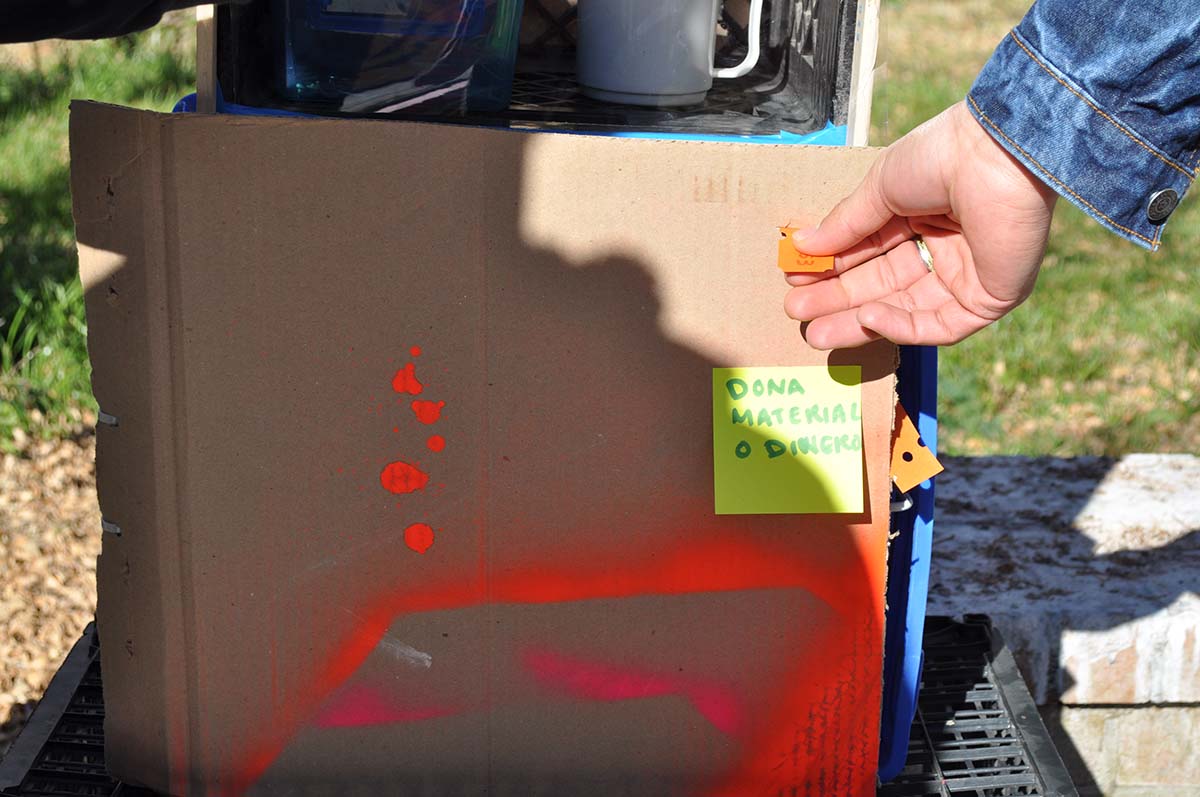
-
